Islamic view of Jesus
Islam holds Jesus (Arabic: عيسى `Īsā) to have been a messenger and a prophet of God who lived roughly between 8–2 BC/BCE to 29–36 AD/CE. The concept of prophecy in Islam is broader than Judaism and Christianity since Muslims distinguish between "messengers" (ar: rasul) and "prophets" (ar: nabi). [1] The Qur'an gives him the unique title of the Messiah.[2] According to the Qur'an, Jesus was one of God's most beloved messengers, a precursor to Muhammad,[3] and was sent to guide the Children of Israel.[4] The Qur'an tells of his miraculous birth to Mary (Arabic: Maryam), cites the miracles he performed by God's permission, and states that God raised him to His Presence. The Qur'an also alludes to Jesus' future return.[2] Also Qur'an states that Jesus was not crucified and that God lifted him to heaven [2][5], and a famous hadith states that he will return to Earth before the Day of Judgment and defeat the Dajjal(Anti-Christ) and the enemies of Islam. The Islamic conceptualization of Jesus is similar to that of the Unitarian Christian tradition
The Anglicized name of Jesus is derived from the Latin Iēsus, which in turn comes from the Greek Ἰησοῦς (Iēsoûs). Based on some strong evidences from the Hebrew Bible and New Testament, Western scholars are certain that Jesus' name was the Hebrew Yehōšua (יהושע) (Aramaic: Yēšua (ישוע)). Yehōšua (יהושע) originally meant "Yahweh helps," but was popularly understood to mean 'Yahweh saves'.[2] Yehōšua (יהושע) is the name by which Moses called his successor as leader of the Israelites, known in English as Joshua.[2]
The Qur'anic reference as 'Isa has puzzled the Western scholars and several theories have been proposed:[2]
The first theory is that "y-sh-' , the Hebrew consonants of Yeshua, have been reversed for some cryptic reason to give 's-y, the Arabic consonants of `Īsā." In support of this theory it has been said that "in ancient Mesopotamia certain divine names were written in one way and pronounced in another; for example EN-ZU was read ZU-EN"[2]
Another theory is that "the Jews called Jesus "Esau" (Hebrew 'Esaw) out of hatred and that Muhammad learned this name from them not realizing that it was an insult." In support of this it is said that the Arabic Esau is written as 'Isu and this might have been changed to `Īsā to assimilate it to other qur'anic names ending in -ā. In opposition to this theory, it has been said that there is no evidence that the Jews ever called Jesus Esau. Further, Muhammad criticized Jews for insulting Jesus' mother [Qur'an 4:156] and that those Christians who were acquaintances of Muhammad would have corrected him had Muhammad not realized that it is a Jewish insult to Jesus.[2]
A third theory is that the Qur'an deliberately used the word `Īsā to assimilate it to Musa (Moses) because they were sometimes paired. This also occurs in some modern languages, f. e. slovak (Ježiš - Mojžiš) or czech (Ježíš - Mojžíš). Other examples of assonant pairs include Ṭālūt-Ḏj̲ālūt (Saul and Goliath), Yād̲j̲ūdj-Mād̲j̲ūd̲j̲ (Gog and Magog), etc[2]
The last theory is that Christians in Arabia had coined the term `Īsā from the Syriac forms of Yeshu or Ishu. The Arabic words that are borrowed from Aramaic or Syriac are often employed by 'ayn . Further the Manichaean fragments provide an evidence for dropping the final 'ayin of the borrowed Hebrew terms. But there is no evidence that the term `Īsā had been in use in pre-Islamic times. "There is however a monastery in Syria known as `Īsāniyya as early as 571 C.E."[2]
In all probability though, the name Isa is the Arabised term for the Aramaic name from which Jesus was eventually derived.
Life
Birth
Muslims believe in the virgin birth of Jesus through Mary, which is recounted throughout several passages in the Qur'an. In the Qur'anic story an angel appears before Mary to announce her the gift of a holy son. Mary is surprised and answers the angel that she is virgin. The angel replies "So (it will be): Thy Lord saith, 'that is easy for Me: and (We wish) to appoint him as a Sign unto men and a Mercy from Us':It is a matter (so) decreed...when He determines a matter, He only says to it, 'Be', and it is." ([Qur'an 19:21], [Qur'an 19:35]) The Qur'an rejects the idea that virgin birth implies that Jesus is divine - the example of Adam [Qur'an 3:59] is used in argument against such belief. Sahih Bukhari records that John was a cousin to Jesus.[6] Soon after his birth, Jesus speaks as an infant to defend Mary from accusations of adultery. Two others are noted to have spoken as infants.[7]
Other relevant verses from the Qur'an:
And she (Mary) who guarded her chastity, so We breathed into her of Our Spirit and made her and her son a sign for the nations.
—Qur'an, [Qur'an 21:91]
Other references in hadith are:
When any human being is born. Satan touches him at both sides of the body with his two fingers, except Jesus, the son of Mary, whom Satan tried to touch but failed, for he touched the placenta-cover instead. Sahih Bukhari 4:54:506
Mission
Muslims believe that God gave a Direct Revelation to Jesus, the Injil , while also declaring the truth of the previous revelation, the Torah. Muslims believe that they have been misinterpreted, misrepresented, mistranslated, passed over, and/or textually distorted over time, and that even the earliest manuscripts discovered by archaeologists reflect these changes. Muslims believe that the New Testament no longer represents the original revelation, which the Qur'an calls a "Light", guidance, and a divine scripture ([Qur'an 5:45]).
Jesus is depicted in Islam as having been given miracles as evidence of his prophetic mission. Such miracles, all performed by the leave of God, include: speaking while still the cradle;[8] breathing life into clay models of birds;[9] curing a leper and a life-long blind man;[10] raising the dead;[10] and requesting the descent of a table from heaven upon which was a feast, upon petition of his disciples.[11][5]
Islamic view on his claimed death
Verses [Qur'an 3:55], [Qur'an 4:157], [Qur'an 5:117] and [Qur'an 19:33] of the Qur'an touch the issue of the death of Jesus. [12] According to verse the [Qur'an 4:157], the Jews sought to kill Jesus but they did not kill him nor crucify him but that it appeared so to them: [13]
And their saying: Surely we have killed the Messiah, Jesus son of Mary, the messenger of God; and they did not kill him nor did they crucify him, but it appeared to them so (like Jesus) and most surely those who differ therein are only in a doubt about it; they have no knowledge respecting it, but only follow a conjecture, and they killed him not for sure. Nay! God took him up to Himself; and God is Mighty, Wise.
—Qur'an, [Qur'an 4:157]
Whether Jesus' was resurrected alive or dead, Yusuf ibn Abd-al-Barr, an 11th century Maliki jurist, writes that there have been differences of opinion on this issue.[14] Although most Muslims believe that Jesus was resurrected alive but some contemporary scholars agree with `Abd Allah ibn `Abbas that Jesus died before ascension.[15][16][17]
How Jesus was rescued from crucifixion, the Qur'an doesn't give much detail, hence there have been differences among Muslims. According to some, God replaced Jesus with a double. Others say God transformed another person, probably Judas Iscariot or Simon of Cyrene, to appear exactly like Jesus in order to deceive the Romans and be crucified in Jesus' stead. [5] Some claim that this is evidence of Christian docetist theology influencing Islam at an early stage.[18] Some Muslim rationalists disagreed with this version of the story and proposed that after the authorities failed to arrest Jesus, they knowingly crucified another person. Being kept at a distances, the crowds were misled into thinking that the substitute was Jesus as Jesus's appearance was disfigured by the ordeal.[13] Another less well-known, but nonetheless widely held view (particularly in South Asia) is the so-called Swoon hypothesis: that Jesus didn't die on the cross, but merely fell unconscious, and was later revived in the tomb. The Muslim scholar Ahmed Deedat has been very influential in the spread of this view. [12] Finally, other Muslims notably Mahmoud Ayoub hold that the Qur'an does not in fact deny the crucifixion of Jesus: among other textual and theological arguments, it is argued that the above verse "belongs not to history but to theology in the broadest sense" (like the Qur'anic statement that Mary, mother of Jesus, was a sister of Aaron)[12][19]
On the interpretation of those scholars who deny the crucifixion, the Encyclopedia of Islam writes:[5]
The denial, furthermore, is in perfect agreement with the logic of the Qur’an. The Biblical stories reproduced in it (e.g., Job, Moses, Joseph etc.) and the episodes relating to the history of the beginning of Islam demonstrate that it is “God's practice” (sunnat Allah ) to make faith triumph finally over the forces of evil and adversity. “So truly with hardship comes ease”, (XCIV, 5, 6). For Jesus to die on the cross would have meant the triumph of his executioners; but the Quran asserts that they undoubtedly failed: “Assuredly God will defend those who believe”; (XXII, 49). He confounds the plots of the enemies of Christ (III, 54).
On the interpretation of the minority of Muslims who accept the crucifixion, Mahmoud Ayoub, a professor of Islamic Studies and Comparative Religion states:
The Qur'an is not here speaking about a man, righteous and wronged though he may be, but about the Word of God who was sent to earth and returned to God. Thus the denial of killing of Jesus is a denial of the power of men to vanquish and destroy the divine Word, which is for ever victorious.[20]
Most Muslims believe that Jesus is alive in Heaven, and will return to Earth to defeat the Dajjal (Antichrist). Ibn Hazm writes that there have been difference of opinion on second coming of Jesus.[21][22] Yusuf ibn Abd-al-Barr writes that Sunnis accept the second coming through the individual reports by narrators who are of sound character.[23] Some Islamic scholars like Javed Ahmed Ghamidi and Amin Ahsan Islahi question hadith regarding the second coming of Jesus, since, according to their understanding, it seems to contradict many verses of the Qur'an.[24][25][26][27] Both views are discussed below:
Qur'an
In the following verses, refuters of Jesus' return translate the verb “mutavafika” (متوفيك) as the physical death of Jesus before ascension of his body while proponents translate it as the termination of Jesus' period on earth. Ali ibn Abu Talha, a Tabi‘in, has also reported that `Abd Allah ibn `Abbas said: Mutawaffika connotes Mumayyituka (I am going to give you death).[28]
And when Allah said: O Jesus, I am going to terminate the period (or give you death or take you back) and cause you to ascend unto Me and purify you of those who disbelieve and make those who follow you above those who disbelieve to the day of resurrection; then to Me shall be your return, so l will decide between you concerning that in which you differed.[Qur'an 3:55]
Refuters believe that the pronoun "him" in the following verse points to Muhammad while others believe that "him" points to Jesus. Muhammad ibn Jarir al-Tabari has mentioned three possible interpretations of the verse; firstly, all the People of the Book will believe in Jesus before his death; secondly, all the People of the Book will believe in Jesus before their own deaths, and thirdly, all the People of the Book will believe in Muhammad before their deaths.[29] Yusuf ibn Abd-al-Barr in his book Al-Tamhid has said that Imam Tabari opined that the verse is specific for the People of the Book of the times of Jesus and not for the People of the Book of all times.[30] Amin Ahsan Islahi, however interprets that, everyone from among the People of the Book would believe in the Qur’an before Muhammad’s death.[27]
And there is not one of the People of the Book but most certainly believes in this before his death, and on the day of resurrection he shall be a witness against them.[Qur'an 4:159]
Refuters argue that Jesus' ignorance of his deification on day of judgement shows that he will not come back after his ascension.[31] Traditionally, this verse hasn't been looked at from this angle.
And when Allah will say: O Jesus son of Mary! did you say to men, Take me and my mother for two gods besides Allah he will say: Glory be to Thee, it did not befit me that I should say what I had no right to (say); if I had said it, Thou wouldst indeed have known it; Thou knowest what is in my mind, and I do not know what is in Thy mind, surely Thou art the great Knower of the unseen things. I did not say to them aught save what Thou didst enjoin me with: That serve Allah, my Lord and your Lord, and I was a witness of them so long as I was among them, but when Thou didst cause me to die, Thou wert the watcher over them, and Thou art witness of all things.[Qur'an 5:116]
While commenting on following verse, Geoffrey Parrinder observes that there is no futurity in the grammar of the Qur’an to suggest a post-millennial death. The plain meaning seems to be his physical death at the end of his present human life on earth.[32] However, proponents believe that the day of Jesus' rise would be when he will come again.
And peace on me (Jesus) on the day I was born, and on the day I die, and on the day I am raised to life.[Qur'an 19:33]
Refuters argue that the following verse is for present tense rather than future tense and he was a sign of the Judgement day for the direct addressees of the Qur'an.[25] Proponents translate it for future tense and argue that after his second coming, he will be a sign for day of judgement.
And most surely he (Jesus) is a sign of the hour (Judgement day), therefore have no doubt about it and follow me: this is the right path.
Hadith
Most Muslims believe that Jesus will descend before the Day of Judgment and will slay al-Masīh al-Dajjāl (literally "the Deceiving Messiah," loosely the Antichrist; often referred to simply as "Dajjāl") at the Gate of Ludd in Palestine, They also believe that he will marry, die and be buried in the Masjid al Nabawi. During his life, he will have revealed that Islam is the true religion of God. Most Muslims give these hadith as proof of Jesus' second coming:
Narrated Abu Huraira: Allah's Apostle said, "The Hour will not be established until the son of Mary (i.e. Jesus) descends amongst you as a just ruler, he will break the cross, kill the pigs, and abolish the Jizya tax. Money will be in abundance so that nobody will accept it (as charitable gifts)." Sahih Bukhari 3:43:656
Abu Huraira reported Allah's Messenger (may peace be upon him) as saying: "The Last Hour would not come until ... the time of prayer shall come and then Jesus (peace be upon him) son of Mary would descend and would lead them in prayer..." Sahih Muslim 041:6924
Hudhaifa b. Usaid Ghifari reported: Allah's Messenger (may peace be upon him) came to us all of a sudden as we were (busy in a discussion). He said: What do you discuss about? They (the Companions) said. We are discussing about the Last Hour. Thereupon he said: It will not come until you see ten signs before and (in this connection) he made a mention of the smoke, Dajjal, the beast, the rising of the sun from the west, the descent of Jesus son of Mary (Allah be pleased with him), the Gog and Magog, and land-slidings in three places, one in the east, one in the west and one in Arabia at the end of which fire would burn forth from the Yemen, and would drive people to the place of their assembly. Sahih Muslim 041:6931
Also similar hadith in Sahih Muslim 041:6932,Sahih Muslim 041:6933,Sahih Muslim 041:6934
"...He would then call (that young man) and he will come forward laughing with his face gleaming (with happiness) and it would at this very time that Allah would send Christ, son of Mary, and he will descend at the white minaret in the eastern side of Damscus wearing two garments lightly dyed with saffron and placing his hands on the wings of two Angels..." Sahih Muslim 041:7015
"...and Allah would then send Jesus son of Mary who would resemble 'Urwa b Mas'ud. He (Jesus Christ) would chase him and kill him. ..." Sahih Muslim 041:7023
Narrated Abu Hurairah: The Prophet (peace be upon him) said: There is no prophet between me and him, that is, Jesus (peace be upon him). He will descend (to the earth). When you see him, recognise him: a man of medium height, reddish fair, wearing two light yellow garments, looking as if drops were falling down from his head though it will not be wet. He will fight for the cause of Islam. He will break the cross, kill swine and abolish jizyah. Allah will cause all religions except Islam to perish. He will destroy the Antichrist and will live on the earth for forty years and then he will die. The Muslims will pray over him. Sunnan Abu Dawud 37:4310
How will you be when the son of Mary descends amongst you and he will judge people by the Law of the Qur'an and not by the Law of the Gospel. Sahih Bukhari 4:55:658
However, refuters of Jesus' return question many hadith including those in Sahih Bukhari and argue that as this event (if happens) would be an extra-ordinary event and still not discussed in the first book of hadith, Muwatta by Imam Malik.[26]
In Islamic thought
Jesus is described by various means in the Qur'an. The most common reference to Jesus occurs in the form of "Ibn Maryam" (son of Mary), sometimes preceded with another title. Jesus is also recognised as a prophet (nabī) and messenger (rasūl) of God. The terms wadjih ("worthy of esteem in this world and the next"), mubārak ("blessed", or "a source of benefit for others"), `abd-Allāh (servant of God) are all used in the Qur'an in reference to Jesus.[5]
Another title frequently mentioned in the al-Masīḥ, which translates to "the Messiah." This does not correspond to the Christian concept of Messiah, as Islam regards all prophets, including Jesus, to be normal men without any share in divinity. Muslim exegetes explain the use of the word masīh in the Qur'an as referring to Jesus' status as the one anointed by means of blessings and honors; or as the one who helped cure the sick, by anointing the eyes of the blind, for example.[5] Qur'anic verses also employ the term "kalimatullah" (meaning the "word of God") as a descriptor of Jesus, which is interpreted as a reference to the creating word of God, uttered at the moment of Jesus' conception;[33] or as recognition of Jesus' status as a messenger of God, speaking on God's behalf.[5]
Theology
Muslim understanding of the Trinity rejects the mainstream Christian view that Jesus was the Son of God, regarding belief in the Trinity as a blasphemous denial of tawhid (monotheism). The Qur'an states repeatedly that Jesus was only a human. Muslims do not believe 'Isa (Jesus) is God (in Arabic: Allah), nor that he was the "begotten" Son of God but rather only a man. The mainstream Christian belief, however, is that Jesus is the begotten, divine Son of God.
The Qur'an asserts that Jesus was a righteous Prophet and that he had a special relationship with God. Also, the Qur'an rejects the use of the word "begotten" when used to describe this special relationship Jesus had with God. "Begetting" is, by definition, having an offspring with characteristics of the parent. The Qur'an view such an act as undignifying to the majesty of God and an act of polytheism. The Qur'an also asserts that Allah is the Judge, that He does not die, thus no son is needed to carry out his work as He will not grow old nor die.[34]
And they say: Allah has taken to himself a son. Glory be to Him; rather, whatever is in the heavens and the earth is His; all are obedient to Him.
—Qur'an, [Qur'an 2:116]
The Qur'an asserts that Jesus was only a Prophet of God (not God himself) who worshipped God and taught his followers to do the same.
O followers of the Book! do not exceed the limits in your religion, and do not speak (lies) against Allah, but (speak) the truth; the Messiah, Jesus son of Mary is only a messenger of Allah and His Word which He communicated to Mary and a spirit from Him; believe therefore in Allah and His messengers, and say not, "Trinity". Desist, it is better for you; Allah is only one Allah; far be It from His glory that He should have a son, whatever is in the heavens and whatever is in the earth is His, and Allah is sufficient for a Protector.Qur'an, [Qur'an 4:171]
Minor beliefs
The quotes attributed to Muhammad (Hadith) contain additional information about Jesus.
There were no prophets between Jesus and Muhammad.[35]
Muhammad describes Jesus as he appeared in a dream, and during Muhammad's ascension to Heaven. Jesus is medium in height with a red complexion and long, brown hair.[36]
On one occasion, when he witnessed a man stealing who denied it by swearing to God, Jesus suspected his own eyes rather than disbelieve the man's oath.[37]
In one narration, sins of several prophets are mentioned but nothing is mentioned of Jesus' sins.[38]
John was a cousin to Jesus.[39]
Who are the prophets?
Prophets of Islam are male human beings who are regarded by Muslims to be prophets chosen by God. The term for prophet in Islam is nabi (pl. anbiyaa). All prophets are Muslims, they were just different in the sharia that they taught to their nation, but that they all preached the same message; to believe that there is only one God, not to commit idol-worship, and to follow the word of God, not to commit sin, etc, and that they all came to preach Islam and to warn of the coming of the final prophet and messenger of God; the prophet Muhammad.
Islamic tradition dictates that prophets were sent by God to every nation. In Islam, only Muhammad was sent to convey God's message for the whole of mankind, whereas other prophets were sent to convey a message to a specific group of people or nation.
Unlike Judaism and Christianity, Islam distinguishes between a direct messenger of God (rasul) and a prophet (nabi). Both are divinely inspired recipients of God's revelation. However, in addition, rasuls are given a divine message or revelation for a community in book form. While all rasul are nabi, not all nabi are rasul.
Muslims believe the first prophet was Adam, while the last prophet and rasul was Muhammad, thus his title Seal of the Prophets. Isa (Jesus) is the result of a virgin birth in Islam as in Christianity, and is regarded as a nabi because he received a wahi from God. Jesus is also considered to be one of the rasul as God revealed the Injil (Gospel) to him.[1] Contrary to Christianity, in Islam, it is heresy to claim that God had a son.
Muslims believe that God has sent over 124,000 messengers all over the world as mentioned in the Sahih Hadith. However, of these, five (sometimes known as Ulul Azmi or the Imams — i.e. leaders — of the Rasuls) are the most commonly revered for their perseverance and unusually strong commitment to God in the face of great suffering. These five are Nuh (Noah), Ibrahim (Abraham), Musa (Moses), Isa (Jesus), and Muhammad.
Qur'an
The following table lists the prophets mentioned in the Qur'an. Biblical versions of names are given where applicable. However, it is clearly stated in Qur'an that this list is not comprehensive:
“
And certainly We sent messengers (rasul) before you: there are some of them that We have mentioned to you and there are others whom We have not mentioned to you..."
„
—Qur'an, [Qur'an 40:78]
Name (Arabic & Arabic Translit.)
Name (Biblical)
Main Article(s)
No. of verses with mention
آدمAdam
Adam
Main articles: Islamic view of Adam, Adam, and Adam and Eve
77
"Adam is the first prophet of Islam and the first human being. He was created by God but brought to life forty days after being kept as a dry body." He is an important figure in Judaism and Christianity as well and he is best known for the story of Adam and Eve.
إدريسIdris
Enoch
Main articles: Idris (prophet) and Enoch (ancestor of Noah)
2
Idris lived during a period of drought inflicted by God to punish the people of the world who had forgotten God. Idris prayed for salvation and an end to the suffering, and so the world received rain.[citations needed]
نوحNuh
Noah
Main articles: Islamic view of Noah and Noah
47
Although best known for the Deluge, Nuh was a primary preacher of monotheism at his time. Muslims believe his faith in God led to his selection for building the Ark. In contrast with Christian and Jewish traditions which say the Deluge was a global event, there is some difference in opinion in Islam over whether the flood associated with Nuh was localized or global.[citation needed]
هودHud
Eber
Main article: Hud (prophet)
8
Muslims believe Hud, for whom the eleventh chapter of the Qur'an is named, was one of the few people to survive a great storm inflicted by God, similar to the Deluge five generations earlier, to punish the people of the `Ad who had forgotten about God. Hud, by comparison and records, is never mentioned in the Old Testament of the Bible.[citation needed]
صالحSaleh
Shaloh
Main article: Saleh
According to the Qur'an God ordered Saleh to leave behind his people, the tribe of Thamud, after they disbelieved and disobeyed God's order to care for a special camel and instead killed it. In Saleh's and his followers' (believers) absence, God punished the people with an utter cry from the skies that killed his people instantly. Note that Saleh is not Shelah mentioned in the Old Testament.
إبراهيمIbrahim
Abraham
Main articles: Islamic view of Abraham and Abraham
71
Abraham is regarded by Muslims today as one of the significant prophets, because he is credited with rebuilding the Kaaba in Mecca. His family, including his son Ishmael, is also credited with helping create the civilization around Mecca that would later give birth to the final prophet of Islam, Muhammad. Ibrahim is also noted for almost sacrificing his son Ismail (Ishmael) for God in an event now commemorated annually by Eid ul-Adha. He is also the first prophet to name the believers as "Muslims" meaning "those with full submission to God".[citation needed]
لوطLut
Lot
Main articles: Islamic view of Lot and Lot (Bible)
29
Lot is most notable in Islam for attempting to preach against homosexuality in Sodom and Gomorra in addition to preaching for his people to believe in the Oneness of God, only to be mocked and ignored by the people who lived there. Islam also denies the acts attributed to Lut that are mentioned in the Old Testament, like drinking and being drunk, and having intercourse with and impregnating his two daughters.
إسماعيلIsmail
Ishmael
Main articles: Islamic view of Ishmael and Ishmael
12
Ismaïl, first-born son of Ibrahim, is a notable prophet in Islam for his near-sacrifice in adulthood. As a child he and his mother Hagar's search for water in the region around Mecca led God to reveal the Zamzam well, which still flows to this day.
إسحاقIshaq
Isaac
Main article: Isaac
16
According to Islamic tradition, Isaac, second-born son of Ibrahim, became a prophet in Canaan. He, along with his brother Ismaïl, carried on the legacy of Ibrahim as prophets of Islam.
يعقوبYaqub
Jacob
Main article: Jacob
19
Jacob, according to the Qur'an was "of the company of the Elect and the Good"[2] and he continued the legacy of both his father, Isaac, and his grandfather, Abraham. Like his ancestors, he was committed to worshipping God exclusively.
يوسفYusuf
Joseph
Main articles: Islamic view of Joseph and Joseph (Bible)
37
Yusuf, son of (Yaqub) and great-grandson of Ibrahim, became a prominent advisor to the king of Egypt since the king was believed to have seen a dream, which was interpreted by Yusuf that predicted the economic state of Egypt. He spent a large part of his life away from his eleven brothers, who were jealous of Yusuf because their father favored him. They took him one day, telling their father that they where going to play and have fun, but they planned to kill him. Instead, they threw him down a well and told their father Yaqub that he was eaten by a wolf. According to Islam Yusuf was gifted with 50% of the beauty distributed to mankind.
أيوبAyub
Job
Main article: Job (Bible)
4
According to Islamic tradition, Ayub was rewarded by a fountain of youth, which removed all illnesses except death, for his service to God in his hometown outside Al Majdal. Ayub is believed to have suffered an illness for 18 years as test of patience by God.
شعيبShoaib
Jethro
Main articles: Shoaib and Jethro
Jethro was a direct descendant of Abraham. According to Islam, he was appointed by God to guide the people of Midyan and Aykah, who lived near Mount Sinai. When the people of the region failed to listen to his warnings, God destroyed the disbeliever's villages. Although it is mentioned in the Qur'an, and by the reported speeches from Muhammad that Musa married one of Shoaib's daughters, and the same thing is mentioned in the Old Testament for a man named Jethro, some scholars believe that Jethro in the Old Testament is not the same person as Shoaib in the Qur'an.
موسىMusa
Moses
Main articles: Islamic view of Moses and Moses
176
Moses, referred to in the Qur'an more than any other prophet, is significant for revealing the Tawrat (Torah) to the Israelites. The Qur'an says Musa realized his connection with God after receiving commands from him during a stop at Mount Sinai. He later went on to free the enslaved Hebrews after the Egyptian pharaoh denied God's power. Musa subsequently led the freed Hebrews for forty years through the desert after they refused to obey God's command and enter the Holy Lands, saying to Moses (as mentioned in Qur'an [Qur'an 5:24], "O Moses! We will never enter (the land) while they are in it. So go thou and thy Lord and fight! We will sit here." During this long journey, on another trip to Mount Sinai Musa received the Tawrat and the Ten Commandments. At the end of his life, according to Islamic tradition, Musa chose to die to be closer to God instead of taking an offer that would have extended his life.
هارونHarūn
Aaron
Main articles: Islamic view of Aaron and Aaron
24
Harun (Aaron) served as an assistant to his older brother Musa (Moses). In Islam, he, like Musa, was given the task of saving the Israelites from the Egyptian pharaoh. He would often speak for Musa when Musa’s speech impediment prevented him from doing so himself.
ذو الكفلDhul-Kifl
most likely Ezekiel
Main articles: Dhul-Kifl and Ezekiel
2
The status of Dhul-Kifl as a prophet is debatable within Islam, although both sides can agree that he was indeed a righteous man who strived in the way of God. Some studies also note that Dhul-Kifl can be also Obadiah, who is mentioned in the Old Testament to be the one that took care of 100 prophets.
داودDawood
David
Main article: David
16
In Islam, the Zabur (Psalms) were revealed to Dawood (David) by God. He is also significant as he is the one who defeated Goliath. It is worth to note that the story of King David with Uriah according to the Islamic tradition is different, thus the acts attributed to King David in the Old Testament like sending Uriah to be killed for the purpose of marrying his wife is denied in Islam.
سليمانSulaiman
Solomon
Main articles: Islamic view of Solomon and Solomon
21
Sulaiman (Solomon) learned a significant amount from his father Daud before being made a prophet by God. According to Islamic tradition, Sulaiman was given power over all things, including the jinns. Known for his honesty and fairness, he also led a kingdom that extended into southern Arabia.
إلياسIlyas
Elijah
Main articles: Ilyas and Elijah
3
Ilyas (Elijah), descendant of Harun (Aaron), took over control of the southern part of the Arabian Peninsula after Sulaiman's (Solomon)kingdom collapsed. Islamic tradition says he attempted to convince the people of the Peninsula of the existence of only one God, but when the people refused to listen they were smitten with a drought and famine.
اليسعAl-Yasa
Elisha
Main articles: Al-Yasa and Elisha
2
Al-Yasa (Elisha) took over the job of leading the Israelites after Ilyas's (Elijah) death. He attempted to show the king and queen of Israel the powers of God, but was dismissed as a magician. Subsequently, the Assyrians were able to make people burn and inflict significant damage on them.
يونسYunus
Jonah
Main article: Jonah
5
Islamic tradition shows that Yunus (Jonah) was commanded by God to help the people of Nineveh towards righteousness. However, after Nineveh's people refused to listen to God, he became disgruntled and became angry for God. After an incident where Yunus was spared death, he decided to re-commit himself to striving for God, attempting to lead the people of Nineveh to righteousness. But after returning to evil, illicit ways, the Scythians conquered them.[3]
زكرياZakariya
Zacharias
Main articles: Islamic view of Zechariah and Zechariah (priest)
8
A descendant of Sulaiman, Zakariya (Zachariah was a patron of Maryam (Mary) the mother of 'Isa. According to the Qur'an, he prayed to God asking for a son, since his sterile wife al-Yashbi could not provide one. God granted his wishes, temporarily lifting his wife's sterility and allowing her to give birth to Yahya (John).[4]
يحيىYahya
John the Baptist
Main articles: Islamic view of John the Baptist and John the Baptist
5
Yahya (John) was cousin to 'Isa and Islam says that, throughout his lifetime, Yahya captivated audiences with his powerful sermons that preached Abrahamic monotheism. The Qur'an does not mention baptism.
عيسىIsa
Jesus
Main articles: Islamic view of Jesus and Jesus
28
One of the highest ranked prophets in Islam, 'Isa al-Maseeh, (Jesus the Messiah) was sent to guide the Children of Israel. The Qur'an makes it very clear that in Islam, Jesus is not the begotten (physical) son of God, but rather a nabi and rasul (messenger) of God.
'Isa performed many miracles with the permission of God. For example, raising the dead, creating a bird from clay, talking as an infant. Islamic traditions states that he abstained from drinking alcohol. It also states that he received a revelation, the Injil (Gospel), though according to Islam, it has been distorted. Muslims believe that 'Isa was not crucified, meaning he was not killed on the cross. Whether he was put on the cross or not is an issue of interpretation. Mainstream Muslim belief is that 'Isa was raised up to God and will return to Earth to fight Dajjal during the time of the Mahdi (divinely guided one).
محمدMuhammad
Paraclete
Main article: Muhammad
275
Habib u'l A'zam, Imam u'l Anbiya Sayyidina Muhammad ibn 'Abdullah,(53 B.H-11 A.H; 571-632 AD) [5] is the last prophet in Islam ("seal of the Prophets"). Idolatry of any of the prophets should be avoided, as their messages from God hold the most weight. His father's name was 'Abdullah ibn 'AbdulMuttalib and his mother's name was Amina bint Wahb az-Zuhriyya. Muhammad is considered the most perfect creation by God. Born in Makkah in 53 B.H (571 AD), Muhammad spent the first part of his life as a well-travelled merchant. He would often spend his time in the mountains surrounding Makkah in prayer contemplating the situation with the city. At the age of forty, during one of those trips to the mountain, Muhammad began to, despite his illiteracy, receive and recite verses from God which today make up the Qur'an. He quickly spread the message he was receiving, converting a few others in the city, including his wife. He is the last (seal) of the prophets with a message to all humanity. When oppression became intolerable for his followers, Muhammad first asked his fellow Muslims to migrate to Medina and later himself migrated to Medina away from the oppressors in Makkah. Muhammad served not just as a prophet, but as a military leader who helped defeat the Makkans in 624 during the Battle of Badr. He continued to lead the Muslims as Islam spread across the Arabian Peninsula. He performed the first hajj in 629 and established Islam as it is still practiced by Muslims today. Others continued Muhammad's legacy after his death in 632, having been given the position of caliph (or successor) to Muhammad. The Five Pillars were established after Muhammad's death.
Other prophets
Muslims believe in other prophets other than those mentioned by name in the Quran as ther are many verses in the Quran that speak about this:
"And certainly We sent messengers (rasul) before you: there are some of them that We have mentioned to you and there are others whom We have not mentioned to you..." [Qur'an 40:78]
"For We assuredly sent amongst every People a messenger..."[Qur'an 16:36]
Muslims believe that God has sent over 124,000 messengers all over the world, as mentioned by the prophet Muhammad in the Sahih Hadith.
The verses open up debate, and there is no strong consensus as to the identities of the other authentic Prophets.
Al-Imran is mentioned in the Qur'an, he was father of Maryam.
Al-Khidr is not mentioned by name, but is traditionally assumed to be referred to in Qur'an 18:66
Biblical prophets Danyal (Daniel), Ishaia (Isaiah), Armya (Jeremiah), Samuel are mentioned by Ibn Kathir in his book as prophets.
Luqman is mentioned in the sura named after him but it is unclear whether he is a prophet or a wali. According to the most wide-spread shiite belief, Luqman was a wiseman, not a prophet nor a wali. The reported news hold that Luqman had a dream, and in that dream he was asked to choose between being a King and a wiseman, and he chose the second.
Additional numerous historical figures may have been prophets, but this is a source of debate and contention, among them: Zoroaster, Gautama Buddha and Rama. However, Muslims will state that there is no way of knowing for sure since they are not mentioned by name in the Qur'an. An argument often used in support of the prophethood of such men is that they came with the word of God, but it was later corrupted, this accounting for the differences between Islam, and the respective religions with which each man is associated. The Hadith and Qur’an support such claims that say that a messenger was sent to every people.
Maryam (Mary) mother of 'Isa
A few scholars (e.g. Ibn Hazm)[6] have argued that she was a nabi prophetess, since she was sent a message from God via an angel but the Qur'an does not state that she is one, and thus it cannot be definitely established that she is. The majority position among Islamic scholars is that no woman has received a prophetic mission from God, especially due to religious reasons including the maintenance of Hijaab. According to the Shi'a belief, she was a holy woman, but she was not a prophet. In the Qur'an, 'Isa is usually referred to as 'Isa bin Maryam (Jesus, son of Mary), a matronymic, indicative of Jesus having no father. Not a human one nor taking God as his "heavenly father", but that Mary conceived by the Will of God.
Prophets of Islam in the Qur'an
Adam
Idris
Nuh
Hud
Saleh
Ibrahim
Lut
Ismail
Is'haq
Yaqub
Yusuf
Ayub
آدم
ادريس
نوح
هود
صالح
إبراهيم
لوط
اسماعيل
اسحاق
يعقوب
يوسف
أيوب
Adam
Enoch
Noah
Eber
Shelah
Abraham
Lot
Ishmael
Isaac
Jacob
Joseph
Job
Shoaib
Musa
Harun
Dhul-Kifl
Daud
Sulayman
Ilyas
Al-Yasa
Yunus
Zakariya
Yahya
Isa
Muhammad
شعيب
موسى
هارون
ذو الكفل
داود
سليمان
إلياس
اليسع
يونس
زكريا
يحيى
عيسى
محمد
Jethro
Moses
Aaron
Ezekiel
David
Solomon
Elijah
Elisha
Jonah
Zechariah
John
Jesus
The Virgin Mary in Islam ("Maryam" in Arabic) is the mother of Jesus (Arabic Isa). Jesus is considered by Muslims to be one of the prophets of Islam.
According to the Qur'an, Isa was born miraculously without a human biological father, but by the will of Allah (God). His mother is regarded as the most saintly, pious, chaste, and virtuous woman ever and a highly respected figure in Islam. The Qur'an quite decisively declares that Jesus was the result of a virgin birth, but that neither she nor her son was divine.
In the Qur'an, no other woman is given more attention than the Virgin Mary. In fact, the nineteenth sura of the Qur'an is named after her and is about her life. Of the Qur'an's 114 suras, she is among only eight people who have a sura named after them. Mary is also the only woman specifically named in the Qur'an. In Islam, she is generally referred to as Maryam, Umm Isa (Mary, the mother of Jesus). For Muslims, the Virgin Mary is viewed as both an example and a sign for all people.
According to the Qur'an, Mary's father was Nabi Imran and her mother was Hannah. Mary's story begins while she is still in her mother's womb. The mother of Mary said, "O my Lord! I do dedicate into Thee what is in my womb for Thy special service: So accept this of me: For Thou hearest and knowest all things." (Qur'an 3:35). When Mary was delivered, she said, "O my Lord! Behold! I am delivered of a female child!" (Qur'an 3:36). She had expected her baby to be a boy who would grow up to be a scholar or religious leader. Qur'an 3:36 continues "…and God knew best what she brought forth — 'And no wise is the male like the female. I have named her Maryam, and I commend her and her offspring to Thy protection from Satan, the Rejected.'"
In Qur'an 3:37, God states that He accepted Mary as her mother had asked. She was assigned into the care of a priest named Zacharias (Zakariya). "Every time that he entered (her) chamber to see her, he found her supplied with sustenance. He said, 'O Mary! Whence (comes) this to you?' She said, 'From God. For God provides sustenance to whom He pleases without measure.'" (Qur'an 3:37). Although his wife was barren and he was very old, God blesses Zacharias and his wife Elizabeth with John. John is known as "John the Baptist" in the Bible.
[edit] The virgin birth
The Qur'an declares that Jesus was the result of a virgin birth, but describes Mary and her son not as divine, but as "honoured servants" (21.26). The most detailed account of the annunciation and birth of Jesus is provided in Sura 3 and 19 of The Qur'an wherein it is written that God sent an angel to announce that she could shortly expect to bear a son, despite being a virgin:
The Qur'an discusses Mary's miraculous pregnancy as well. "Relate in the Book (the story of) Mary, when she withdrew from her family to a place in the East. She placed a screen (to screen herself) from them; then We sent her Our angel, and he appeared before her as a man in all respects." (Qur'an 19:16-17). After seeing the angel, she said: "I seek refuge from thee to (God) Most Gracious: (come not near) if thou dost fear God." (Qur'an 19:18). The angel Gabriel responded: "Nay, I am only a messenger from thy Lord, (to announce) to thee the gift of a pure son." (Qur'an 19:19). She asked: "How shall I have a son, seeing that no man has touched me, and I am not unchaste?" (Qur'an 19:20). The Angel Gabriel said: "So (it will be): thy Lord saith, 'That is easy for Me: and (We wish) to appoint him as a Sign unto men and a Mercy from Us.' It is a matter (so) decreed." (Qur'an 19:21). Mary then becomes pregnant.
After conceiving Jesus, Mary went away with the baby to a distant place (Qur'an 19:22). "And the pains of childbirth drove her to the trunk of a palm-tree. She cried (in her anguish): 'Ah! would that I had died before this! would that I had been a thing forgotten!'" (Qur'an 19:23). Joseph, the magi, and manger are not mentioned in the Qur'an. God was Mary's only Provider. Muslims do not accept the virgin birth of Jesus as evidence of Jesus' divinity. "The similitude of Jesus before God is as that of Adam; He created him from dust, then said to him: 'Be.' And he was." (Qur'an 3:59).
(Remember) When the angels said O Mary! God Gives thee Good News of a son through a Word from Him! His name shall be the Messiah, Jesus son of Mary, honoured in this world and in the next, and of those who Are Granted Nearness to God! (3.45)
And he shall speak to the people in the cradle, and when of middle age, and he shall be of The Righteous (3.46)
She said My Lord! How shall I have a son when no man has touched me ? He Said, That is as it shall be. God Creates what He Pleases. When He decrees a thing He says to it "Be" and it is! (3.47)
The Qur'an also declares that one of the reasons (amongst many listed) for the punishments of The-God upon the People of the Book -- "God has sealed their hearts" (4.155) -- is for their "uttering a monstrous lie against Mary" (4.156). This is understood by some to refer to the accusations of wanton unchastity which was directed by some against Mary in her lifetime and which (Jewish sources consider to be anti-Semitic) interpretations recorded in the Talmud. In fact the Qur'an includes Christians, Jews (including Karaites and Samaritans), "Sabians" (a Qur'anic term interpreted to refer to the Mandaeans) and Zoroastrians among the People of the Book.
Sura 5 Signs 116-119 of The Qur'an includes the Prophecy of the Judgment Day where "Jesus son of Mary" will be questioned by God as regards those who worship him and Mary, and that Jesus will deny them:
And when God will say O Jesus, son of Mary, didst thou say to men: Take me and my mother for two gods beside God? He will answer Holy art Thou! I could never say that which I had no right. If I had said it, Thou wouldst have surely known it. Thou knowest what is in my mind, and I know not what is in Thy mind. It is Thou alone Who Art the Knower of all hidden things
I said nothing to them except that which Thou didst command me - Worship God (Arabic: Allah), my Lord and your Lord. And I was a witness over them as long as I remained among them, but since Thou didst cause me to die, Thou, hast been the Watcher over them, and Thou art Witness over all things
If Thou punish them, they are Thy servants; and if Thou forgive them, Thou surely art the Mighty, the Wise.
God Will Say This is a Day when only The Truthful shall profit by their truthfulness. For them are Gardens beneath which streams flow; therein shall they abide forever. God Is well Pleased with them, and they are well pleased with Him! That indeed is the Supreme Triumph!
Her dignity
Holy Virgin Mary is one of the four most highly regarded women to have ever lived. There are several verses in the Qur'an praising her and confirm that she was an extremely chaste and pious woman. The other three women are: Bithiah (Asiyah in Arabic), foster mother of Prophet Moses (Musa) and wife of Pharaoh. Khadijah bint Khuwaylid, wife of Prophet Muhammad. Fatimah bint Muhammad, daughter of Prophet Muhammad. Mary(Mariam),is known and respected by millions.To some she is also known as Lady Mary;her Tomb is located in the Holy Land of Israel, near Jerusalem.
BARNABAS
The Gospel of Barnabas is a work purporting to be a depiction of the life of Jesus by his disciple Barnabas. Two known manuscripts have been dated to the late sixteenth century, and are written respectively in Italian and in Spanish; although the Spanish version survives now only in an eighteenth century copy. It is about the same length as the four canonical gospels put together (the Italian manuscript has 222 chapters); with the bulk being devoted to an account of Jesus' ministry, much of it harmonised from accounts also found in the canonical gospels. In some, but not all, respects it conforms to the Islamic interpretation of Christian origins.
The Gospel is considered by the majority of academics (including Christians and some Muslims) to be late and pseudepigraphical; however, some academics suggest that it may contain some remnants of an earlier apocryphal work edited to conform to Islam, perhaps Gnostic (Cirillo, Ragg) or Ebionite (Pines) or Diatessaronic (Joosten); and some Muslim scholars consider the surviving versions as transmitting a suppressed apostolic original. Some Islamic organizations cite it in support of the Islamic view of Jesus.
Textual history
The earliest mention of a Barnabas text which is generally agreed to refer to the one found in the two known manuscripts, is reported to be contained in Morisco manuscript BNM MS 9653 in Madrid, written about 1634 by Ibrahim al-Taybili in Tunisia. While describing how, in his opinion, the Bible predicts Muhammad, he speaks of the "Gospel of Saint Barnabas where one can find the light" ("y asi mesmo en Elanjelio de San Barnabé donde de hallara luz"). It was mentioned again in 1718 by the Irish deist John Toland, and was mentioned in 1734 by George Sale in The Preliminary Discourse to the Koran:
The Mohammedans have also a Gospel in Arabic, attributed to St. Barnabas, wherein the history of Jesus Christ is related in a manner very different from what we find in the true Gospels, and correspondent to those traditions which Mohammed has followed in his Koran. Of this Gospel the Moriscoes in Africa have a translation in Spanish; and there is in the library of Prince Eugene of Savoy, a manuscript of some antiquity, containing an Italian translation of the same Gospel, made, it is to be supposed, for the use of renegades. —The Preliminary Discourse to the Koran, p. 79.
This appears to allude to versions of both the known manuscripts: the Italian and the Spanish.
Earlier occurrences of a Gospel of Barnabas
A "Gospel according to Barnabas" is mentioned in two early Christian lists of apocryphal works: the Decretum Gelasianum (no later than the 6th century), as well as a 7th-century List of the Sixty Books [1]. These lists are independent witnesses, but in neither case is it sure that the compiler had actually seen all the listed works. Furthermore, these lists provide no details about the contents of the work, and there is no reason to assume that the text of the 6th-7th century Gospel of Barnabas was the same as this one. M. R. James, New Testament Apocrypha (1924) disputed whether the work mentioned in those lists ever existed.
This work should not be confused with the surviving Epistle of Barnabas, which may have been written in 2nd century Alexandria. There is no link between the two books in style, content or history other than their supposed attribution to Barnabas. On the issue of circumcision, the two authors clearly hold very different views, that of the epistle's rejection of the Jewish practice as opposed to the gospel's promotion of the same. Neither should it be confused with the surviving Acts of Barnabas, which narrates an account of Barnabas' travels, martyrdom and burial; and which is generally thought to have been written in Cyprus sometime after 431.
In 478, during the reign of the Emperor Zeno, archbishop Anthemios of Cyprus announced that the hidden burial place of Barnabas had been revealed to him in a dream. The saint's body was claimed to have been discovered in a cave with a copy of the canonical Gospel of Matthew on its breast; according to the contemporary account of Theodorus Lector, who may well have been present when both bones and gospel book were presented by Anthemios to the emperor. Some students who maintain the antiquity of the Gospel of Barnabas propose that the text purportedly discovered in 478 should be identified with the Gospel of Barnabas instead, but no contemporary witness supports this opinion. According to a medieval tradition preserved in the monastery of Sumela south of Trabzon, the relics of Barnabas were subsequently presented to that monastery by Justinian; but were lost a century later when Persian forces occupied the Pontic Alps in their campaigns against Heraclius.
In 1986, it was briefly claimed that an early Syriac copy of this gospel had been found near Hakkari (cf. Hamza Bektaş in İlim ve Sanat Dergisi of March-April 1986, and «Türkiye» from July 25, 1986, "Barnabas Bible Found", in Arabia 4/1985/ 1405/ No. 41/ Jan.-Febr./ Rabi Al-Thani, p. 46, "Original Bible of Barnabas Found in Turkey", in The Minaret 12, 3; 1.+ 16. April, 1985, n.p.)[2] However, shortly afterwards it was reported that this manuscript actually merely contained the canonical Bible (Ron Pankow, "The Barnabas Bible?", in: Arabia 1985/1405//March-April/ Rajib, n.p.)[3]
The manuscripts
Italian Ms. Prince Eugene's Italian manuscript had been presented to him in 1709 by John Frederick Cramer; it appears to date to the end of the sixteenth century. It was transferred to the Hofbibliothek in Vienna in 1738 with the rest of his library, and still survives there, in the Austrian National Library. The pages of the Italian manuscript are framed in an Islamic style, and contain chapter rubrics and margin notes in often ungrammatical and incorrect Arabic (with an occasional Turkish word, and many Turkish syntactical features), the margin notes forming a rough Arabic gloss of selected passages. Its binding is Turkish, and appears to be original; but the paper appears Italian, as does the handwriting (albeit with many idiosyncrasies of spelling). There are catchwords at the bottom of each page, a practice common in manuscripts intended to be set up for printing. The manuscript appears to be unfinished - in that the 222 chapters are provided throughout with framed blank spaces for titular headings, but only 27 of these spaces have been filled. In addition, there were originally 38 whole framed blank pages preceding the text - into which, it may be presumed, some other work was intended to be copied. It is the Italian version that the Raggs' 1907 translation, the most commonly circulated in English, is based on. It was followed in 1908 by an Arabic translation by Khalil Saadah, published in Egypt.
The complete Italian text is transcribed with an English translation and introduction:
Ragg, L and L - The Gospel of Barnabas. (Clarendon Press, Oxford, England, 1907).
A second Italian edition - in parallel columns with a modernised text:
Eugenio Giustolisi and Giuseppe Rizzardi, Il vangelo di Barnaba. Un vangelo per i musulmani? (Milano: Istituto Propaganda Libraria, 1991).
The complete text of the Italian manuscript has been published in photo-facsimile; with a French translation and extensive commentary and textual apparatus:
Cirillo L. & Fremaux M. Evangile de Barnabe: recherches sur la composition et l'origine, Paris, 1977, 598p
Spanish Ms. The known Spanish manuscript was lost in the eighteenth or nineteenth centuries; however an eighteenth century copy of it was discovered in the 1970s in the University of Sydney's Fisher Library among the books of Sir Charles Nicholson, labelled in English "Transcribed from ms. in possession of the Revd Mr Edm. Callamy who bought it at the decease of Mr George Sale...and now gave me at the decease of Mr John Nickolls, 1745". J. E. Fletcher, The Spanish Gospel of Barnabas, Novum Testamentum vol. XVIII ((1976), p. 314-320.
Its main difference from the Italian manuscript is that the surviving transcript does not record a substantial number of chapters—which had, however, still been present in the Spanish original when it was examined by George Sale. The Spanish text is preceded by a note claiming that it was translated from Italian by Mustafa de Aranda, an Aragonese Muslim resident in Istanbul. The Spanish manuscript also contains a preface by one assuming the pseudonym 'Fra Marino', claiming to have stolen a copy of the Italian version from the library of Pope Sixtus V. Fra Marino, reports that, having a post in the Inquisition Court, he had come into possession of several works, which led him to believe that the Biblical text had been corrupted, and that genuine apostolic texts had been improperly excluded. Fra Marino also claims to have been alerted to the existence of the Gospel of Barnabas, from an allusion in an (otherwise unknown) work by Irenaeus against Paul; in a book which had been presented to him by a lady of the Colonna family (Marino, outside Rome, is the location of the Palazzo Colonna).
The text of the Spanish manuscript has been published with extensive commentary:
Bernabe Pons L. F. El Evangelio de San Bernabe; Un evangelio islamico espanol, Universidad de Alicante, 1995, 260p
Origins
Some students of the work argue for an Italian origin, noting phrases in Barnabas which are very similar to phrases used by Dante and suggesting that the author of Barnabas borrowed from Dante's works; they take the Spanish version's preface to support this conclusion. Other students have noted a range of textual similarities between passages in the Gospel of Barnabas, and variously the texts of a series of late mediaeval vernacular harmonies of the four canonical gospels (in Middle English and Middle Dutch, but especially in Middle Italian); which are all speculated as deriving from a lost Old Latin version of the Diatessaron of Tatian (Jan Joosten, "The Gospel of Barnabas and the Diatessaron," Harvard Theological Review 95.1 (2002): 73-96). This would also support an Italian origin.
Other students argue that the Spanish version came first, regarding the Spanish preface's claims of an Italian source as intended to boost the work's credibility by linking it to the Papal libraries. These scholars note parallels with a series of Morisco forgeries, the Sacromonte tablets of Granada, dating from the 1590s; or otherwise with Morisco reworkings of Christian and Islamic traditions, produced following their expulsion from Spain (G.A.Wiegers, "Muhammad as the Messiah: A comparison of the polemical works of Juan Alonso with the Gospel of Barnabas", Leiden, Bibliotheca Orientalis, LII, no 3/4, April-Juni 1995, pp.245-292).
The lost Spanish manuscript claimed to have been written in Istanbul, previously Constantinople, and the surviving Italian manuscript has several Turkish features; so - whether the language of origin was Spanish or Italian - Istanbul is regarded by most students as the place of origin of the present text. This view has added credibility, in that many early Christian and patristic texts might still be found, in the 16th century, in the Greek libraries of ancient Constantinople - and the city contained substantial Greek, Italian and Spanish speaking communities.
Following the conquest of Moorish Granada in 1492, Sephardi Jews and Muslim Mudejar were expelled from Spain. Although some found initial refuge in Italy (especially Venice), most resettled in the Ottoman Empire, where Spanish speaking Jews established in Istanbul a rich sub-culture with a flourishing Hebrew and Ladino printing industry. Numbers were further agumented after 1550, following campaigns of persecution by the Venetian Inquisition against Italian anti-Trinitarians and Jews. Although Muslim teaching at this time strongly opposed the printing of Islamic or Arabic texts, non-Muslim printing was not, in principle, forbidden; indeed attempts were made in the 1570s by anti-Trinitarians to establish a printing press in the Turkish capital to publish radical Protestant works. In the Spanish preface, Fra Marino records his wish that the Gospel of Barnabas should be printed, and the only place in Europe where that would have been possible in the late 16th century would have been Istanbul.
A minority of students - such as David Sox (The Gospel of Barnabas 1984) - are, however, suspicious of the apparent 'Turkish' features of the Italian manuscript; especially the Arabic annotations, which they adjudge to be so riddled with elementary errors as to be most unlikely to have been written in Istanbul (even by an Italian scribe). In particular, they note that the glossing of the Italian version of the shahada into Arabic, does not correspond exactly with the standard ritual formula recited daily by every Muslim. These students are inclined to infer from these inconsistencies that both manuscripts may represent an exercise in forensic falsification, and they tend to locate their place of origin as Rome.
Few academics argue that the text, in its present form, dates back any earlier than the 14th–16th centuries; although a minority see it as containing portions of an earlier work, and almost all would detect the influence of earlier sources—over and above the Vulgate text of the Latin Bible. Consequently most students would concur with a stratification of the surviving text into at least three distinct layers of composition:
an editorial layer dating from the 1590s; and comprising, at the least, the Spanish preface and the Arabic annotations,
a layer of vernacular narrative composition, either in Spanish or Italian, and dating from no earlier than the mid 14th century,
a layer derived from earlier source materials, almost certainly transmitted to the vernacular author/translator in Latin; and comprising, at the least, those extensive passages in the Gospel of Barnabas that closely parallel pericopes in the canonical gospels; but whose underlying text appears markedly distinct from that of the late medieval Latin Vulgate (as for instance in the alternative version of the Lord's Prayer in chapter 37, which includes a concluding doxology, contrary to the Vulgate text, but in accordance with the Diatessaron and many other early variant traditions);
Much of the controversy and dispute concerning the authenticity of the Gospel of Barnabas can be re-expressed as debating whether specific highly transgressive themes (from an orthodox Christian perspective) might already have been present in the source materials utilised by a 14th–16th century vernacular author, whether they might be due to that author himself, or whether they might even have been interpolated by the subsequent editor. Those students who regard these particular themes as primitive, nevertheless do not generally dispute that other parts of the Gospel may be late and anachronistic; while those students who reject the authenticity of these particular themes do not generally dispute that other parts of the Gospel could be transmitting variant readings from antiquity.
Analysis
This work bears strong parallels with the Islamic faith, not only mentioning Muhammad by name, but including the shahada (chapter 39). It is strongly anti-Pauline and anti-Trinitarian in tone. In this work, Jesus is described as a prophet and not the son of God, while Paul is called "the deceived". Furthermore, the Gospel of Barnabas states that Jesus escaped crucifixion by being raised alive to heaven; while Judas Iscariot the traitor — miraculously transformed — was crucified in his place. These beliefs; in particular that Jesus is a prophet of God and raised alive without being crucified; conform with Islamic beliefs. Other passages however conflict with the text/teachings of the Qur'an; as for instance in the account of the Nativity, where Mary is said to have given birth to Jesus without pain; or as in Jesus's ministry, where he permits the drinking of wine and enjoins monogamy. Narrative themes, and some highly distinctive phraseology, are shared with the Divine Comedy of Dante (Ragg). If (as most students surmise) the Gospel of Barnabas is seen as an attempted synthesis of elements from both Christianity and Islam, then sixteenth and seventeenth century parallels can be suggested in Morisco and anti-Trinitarian writings; but there are no known earlier precursors.
The Spanish version includes an account of the discovery of the Gospel of Barnabas in the private study of Pope Sixtus V (1585-1590), an account which appears to many students to be historically incongruous; and this, together with paleographic inconsistencies in the surviving Italian manuscript, has led a number of scholars to conclude that the two known manuscripts may have been prepared in support of an exercise in forensic falsification, intended to discredit or incriminate some leading Roman Catholic ecclesiastic in the Roman Curia of the 1590s (David Sox; The Gospel of Barnabas 1984). There are a number of contemporary parallels for such an exercise - most notably the "Casket Letters" supposedly forged to incriminate Mary Queen of Scots. Some scholars who maintain this view consequently dismiss the entire Gospel as a hoax; but the majority would consider it more likely that the supposed forgers made use of a pre-existing heterodox text.
Religious themes
The Gospel of Barnabas was little known outside academic circles until recent times, when a number of Muslims have taken to publishing it in order to argue against the orthodox Christian conception of Jesus. It generally resonates better with existing Muslim views than with Christianity: it foretells the coming of Muhammad by name; rather than describing the crucifixion of Jesus, it describes him being raised up into heaven, similar to the description of Elijah in 2 Kings, Chapter 2; and it calls Jesus a "prophet" whose mission was restricted to the "house of Israel". However, it differs from Islamic conceptions in at least two important respects; it reports that Muhammad, not Jesus, was the Messiah, whereas the Qur'an and Hadith both describe Jesus as the Messiah, and no orthodox variety of Islam calls Muhammad the Messiah. In addition, it explicitly denies the Islamic (and Christian) doctrines of God's absolute judgment and foreknowledge — in asserting that, in the matter of salvation: "Our God waits for man to be penitent" (Chapter 114); such that the souls of the wicked in Hell could nevertheless be saved at the end times, if they become converted to penitence (Chapter 113); whereas the righteous —even the saints and prophets— cannot be safe from the fear of eventual damnation; as the possibility cannot be excluded that they might at some future time, through over-confidence in their own righteousness, fall into pride (Chapter 112).
It contains an extended polemic against the doctrine of predestination (Chapter 164), and in favour of justification by faith; arguing that the eternal destination of the soul to Heaven or Hell is neither pre-determined by God's grace (as in Calvinism), nor the judgement of God, in his mercy, on the faith of believers on Earth (as in orthodox Islam). Instead it states that all those condemned at the last judgment, but who subsequently respond in faith, who demonstrate unfeigned penitence, and who make a free choice of blessedness, will eventually be offered salvation (Chapter 137). Only those whose persistent pride prevents them from sincere repentance will remain forever in Hell. Such radically Pelagian beliefs in the sixteenth century were found amongst the anti-Trinitarian Protestant traditions later denoted as Unitarianism. Some sixteenth century anti-Trinitarian divines sought to reconcile Christianity, Islam and Judaism; on the basis of very similar arguments to those presented in the Gospel of Barnabas, arguing that if salvation remains unresolved until the end times, then any one of the three religions could be a valid path to heaven for their own believers. The Spaniard, Michael Servetus denounced the orthodox Christian formulation of the Trinity (demonstrating the only explicit reference to the Trinity in the New Testament to be a later interpolation); and hoped thereby to bridge the doctrinal divide between Christianity and Islam. In 1553 he was executed in Geneva under the authority of John Calvin, but his teachings remained very influential amongst Italian Protestant exiles. In the late sixteenth century many anti-Trinitarians, persecuted both by Calvinists and by the Inquisition, sought refuge in Transylvania; then under Turkish overlordship and with close links to Istanbul. (Christopher J. Burchill:The Heidelberg Antitrinitarians Bibliotheca Dissidentium: vol XI, Baden-Baden 1989,308p).
Included in chapter 145 is "The little book of Elijah"; which sets out instructions for a righteous life of ascetisim and eremetic spirituality. Over the succeeding 47 chapters, Jesus is recorded as developing the theme that the ancient prophets, specifically Obadiah, Haggai and Hosea, were holy hermits following this religious rule; and contrasting their followers - termed "true Pharisees" - with the "false Pharisees" who lived in the world, and who constituted his chief opponents. The "true Pharisees" are said to congregate on Mount Carmel. This accords with the teaching of the medieval Carmelites, who lived as an eremetic congregation on Carmel in the 13th century; but who claimed (without any evidence) to be direct successors of Elijah and the Old Testament prophets. In 1291 the Mamluk advance into Syria compelled the friars on Carmel to abandon their monastery; but on dispersing through Western Europe they found that Western Carmelite congregations - especially in Italy - had largely abandoned the eremetic and ascetic ideal, adopting instead the conventual life and mission of the other Mendicant orders. Some students consider that the ensuing 14th-16th century controversies can be found reflected in the text of the Gospel of Barnabas.
The Gospel also takes a strongly anti-Pauline tone at times, saying in the Italian version's beginning: "many, being deceived of Satan, under pretence of piety, are preaching most impious doctrine, calling Jesus son of God, repudiating the circumcision ordained of God for ever, and permitting every unclean meat: among whom also Paul has been deceived."
Prediction of Muhammad
The Gospel of Barnabas claims that Jesus predicted the advent of Muhammad, thus conforming with the Qur'an which mentions:
"And remember, Jesus, the son of Mary, said: O Children of Israel! I am the apostle of Allah (sent) to you, confirming the Law (which came) before me, and giving Glad Tidings of an Messenger to come after me, whose name shall be Ahmad. But when he came to them with Clear Signs, they said, this is evident sorcery!" (Sura 61:6)
(Ahmad is another name of Muhammad.) A Muslim scholarly tradition links this Qur'anic passage to the New Testament references to the Paraclete (John 14:16, 14:26, 15:26, 16:7). The Greek word "paraclete" can be translated "Counsellor"; and in the Christian tradition, is said to refer to the Holy Spirit. Some Muslim scholars have noted the similarity to the Greek "periklutos" which can be translated as "admirable one"; or in Arabic, "Ahmad".
The name of "Muhammad" is frequently mentioned verbatim in the Gospel of Barnabas, as in the following quote:
"Jesus answered: `The name of the Messiah is admirable, for God himself gave him the name when he had created his soul, and placed it in a celestial splendour. God said: "Wait Mohammed; for thy sake I will to create paradise, the world, and a great multitude of creatures, whereof I make thee a present, insomuch that whoso bless thee shall be blessed, and whoso shall curse thee shall be accursed. When I shall send thee into the world I shall send thee as my messenger of salvation, and thy word shall be true, insomuch that heaven and earth shall fail, but thy faith shall never fail." Mohammed is his blessed name.' Then the crowd lifted up their voices, saying: `O God, send us thy messenger: O Admirable One, come quickly for the salvation of the world!'" Barnabas 97:9-10. The Italian manuscript replaces "Admirable One" with "Muhammad" [4].
However, while there are many passages where the Gospel of Barnabas sets out alternative readings to parallel pericopes found in the canonical gospels, none of the references to Muhammad by name occurs in such a synoptic passage; and in particular, none of the "Muhammad" references in Barnabas corresponds to a "Paraclete" reference in canonical John. There is only one instance where the Gospel of Barnabas might be understood as "correcting" a known canonical pericope, so as to record a prophecy by Jesus of the (unnamed) Messenger of God:
Then Jesus said: "I am a voice that cries through all Judea, and cries: "Prepare you the way for the messenger of the Lord," even as it is written in Esaias." They said: "If you be not the Messiah nor Elijah, or any prophet, wherefore do you preach new doctrine, and make yourself of more account than the Messiah?" Jesus answered: "The miracles which God works by my hands show that I speak that which God wills; nor indeed do I make myself to be accounted as him of whom you speak. For I am not worthy to unloose the ties of the hosen or the ratchets of the shoes of the Messenger of God whom you call "Messiah," who was made before me, and shall come after me, and shall bring the words of truth, so that his faith shall have no end." (Chapter 43):
This passage corresponds closely with the canonical John 1:19-30, except that in that passage, the words are spoken by John the Baptist (in the Qur'an; Yahya ibn Zakariya) and refer to Jesus.
Muhammad as the Messiah
According to one version of the Gospel of Barnabas:
'Then said the priest: "How shall the Messiah be called?" {Jesus answered} "Muhammed is his blessed name" ' (ch. 97).
and
Jesus confessed, and said the truth: "I am not the Messiah." (ch. 42:2)
As mentioned above, these pronouncements appear to contradict Islamic belief. However, the well-known Muslim debater Ahmed Deedat argues that, since "Messiah" merely means "anointed", it can be attributed to any prophet, and Jesus would have meant Muhammad was anointed by God.
Ishmaelite Messiah
According to one version of the Gospel of Barnabas, Jesus denied being the Messiah, claiming rather that the Messiah would be Ishmaelite (ie Arab):
"Whereupon Jesus said: 'Ye deceive yourselves; for David in spirit calleth him lord, saying thus: "God said to my lord, sit thou on my right hand until I make thine enemies thy footstool. God shall send forth thy rod which shall have lordship in the midst of thine enemies." If the messenger of God whom ye call Messiah were son of David, how should David call him lord? Believe me, for verily I say to you, that the promise was made in Ishmael, not in Isaac.'" (Barnabas 43:10)
Hajj Sayed (Senior Member in CIMS), in his new book in Egypt, compares this to the following statement from the canonical Bible:
"What do you think about the Christ? Whose son is he?" "The son of David," they replied. He said to them, "How is it then that David, speaking by the Spirit, calls him 'Lord'? For he says, 'The Lord said to my Lord: "Sit at my right hand until I put your enemies under your feet.' If then David calls him 'Lord,' how can he be his son?" Matthew 22:42-46
According to the canonical Gospels, Jesus was the "son" (descendant) of David; thus, Hajj Sayed argues that this statement confirms the Gospel of Barnabas' point.
The idea of the Messiah as an Arab is also found in another chapter of Gospel of Barnabas:
"If I work iniquity, reprove me, and God will love you, because you shall be doing his will, but if none can reprove me of sin it is a sign that you are not sons of Abraham as you call yourselves, nor are you incorporate with that head wherein Abraham was incorporate. As God lives, so greatly did Abraham love God, that he not only brake in pieces the false idols and forsook his father and mother, but was willing to slay his own son in obedience to God.
The high priest answered: "This I ask of you, and I do not seek to slay you, wherefore tell us: Who was this son of Abraham?" Jesus answered: "The zeal of your honour, O God, inflames me, and I cannot hold my peace. Truly I say, the son of Abraham was Ishmael, from whom must be descended the Messiah promised to Abraham, that in him should all the tribes of the earth be blessed." Then was the high priest wroth, hearing this, and cried out: "Let us stone this impious fellow, for he is an Ishmaelite, and has spoken blasphemy against Moses and against the Law of God." (Barnabas 208:1-2)
Here, one version of the Gospel of Barnabas also quotes Jesus as saying that the sacrificed son of Abraham was Ishmael not Isaac, conforming to Islamic belief but disagreeing with Jewish and Christian belief. A connection might also be drawn between the last paragraph's statement that "in him should all the tribes of the earth be blessed", and the meaning of the name "Muhammad", the "Praised (or Blessed) One". (Cf.Life of Prophet Muhammad).
Jesus not God or Son of God
According to the Gospel of Barnabas, Jesus foresaw and rejected his own deification:
And having said this, Jesus smote his face with both his hands, and then smote the ground with his head. And having raised his head, he said: "Cursed be every one who shall insert into my sayings that I am the son of God" (53:6)
And having said this Jesus went out of the Temple. And the common people magnified him, for they brought all the sick folk whom they could gather together, and Jesus having made prayer gave to all their health: whereupon on that day in Jerusalem the Roman soldiery, by the working of Satan, began to stir up the common people, saying that Jesus was the God of Israel, who was come to visit his people." (69:6)
Jesus answered: "And you; what say you that I am?" Peter answered: "You are Christ, son of God". Then was Jesus angry, and with anger rebuked him, saying: "Begone and depart from me, because you are the devil and seek to cause me offences" (70:1)
Jesus said again: "I confess before heaven, and call to witness everything that dwells upon the earth, that I am a stranger to all that men have said of me, to wit, that I am more than man. For I am a man, born of a woman, subject to the judgment of God; that live here like as other men, subject to the common miseries" (94:1)
Then answered the priest, with the governor and the king, saying: "Distress not yourself, O Jesus, holy one of God, because in our time shall not this sedition be any more, seeing that we will write to the sacred Roman senate in such wise that by imperial decree none shall any more call you God or son of God." Then Jesus said: "With your words I am not consoled, because where you hope for light darkness shall come; but my consolation is in the coming of the Messenger, who shall destroy every false opinion of me, and his faith shall spread and shall take hold of the whole world, for so has God promised to Abraham our father." (97:1)
This conforms entirely with Muslim belief, according to which Jesus is a human and a prophet. According to some ahadith, he will come back to earth in the future and declare to the world that he is "a Servant of God". According to Imam Anwar Al-Awlaki in his audio lessons Lives of the Prophets, the first thing that prophet Jesus said when he was in the cradle "I am a servant of God", and the first thing that Jesus will say when he will come back to earth will be the same "I am a servant of God". According to the Qur'an:
At length she brought the (babe) to her people, carrying him (in her arms). They said: "O Mary! truly an amazing thing hast thou brought! O sister of Aaron! Thy father was not a man of evil, nor thy mother a woman unchaste!" But she pointed to the babe. They said: "How can we talk to one who is a child in the cradle? He said: "I am indeed a servant of Allah (God). He hath given me revelation and made me a prophet; And He hath made me blessed wheresoever I be, and hath enjoined on me Prayer and Charity as long as I live; (He) hath made me kind to my mother, and not overbearing or miserable; So peace is on me the day I was born, the day that I die, and the day that I shall be raised up to life (again)"! Such (was) Jesus the son of Mary: (it is) a statement of truth, about which they dispute. It is not befitting to (the majesty of) Allah (God) that He beget a son. Glory be to Him! when He determines a matter, He only says to it, "Be", and it is. (Mary:27-35)
Paul and Barnabas
Hajj Sayed argues that Galatians's description of the dispute between Paul and Barnabas supports the idea that the Gospel of Barnabas existed at the time of Paul. Blackhirst has suggested, by contrast, that Galatian's account of this argument could be the reason the gospel's writer attributed it to Barnabas.[5] Paul writes in (Galatians Chapter 2):
"When Peter came to Antioch, I opposed him to his face, because he was clearly in the wrong. Before certain men came from James, he used to eat with the Gentiles. But when they arrived, he began to draw back and separate himself from the Gentiles because he was afraid of those who belonged to the circumcision group. The other Jews joined him in his hypocrisy, so that by their hypocrisy even Barnabas was led astray." (Galatians 2:11-14)
Paul was attacking Peter and Barnabas for "trying to satisfy the Jews" by sticking to their laws, such as circumcision. This shows that, at that point, Barnabas was following Peter and disagreeing with Paul. Some feel it also suggests that the inhabitants of Galatia at his time were using a gospel or gospels disagreeing with Paul's beliefs, which Gospel of Barnabas could be one of them (although the Gospel of Peter would seem a more natural candidate, as in the light of the second letter.) To Galatian's account we may compare the Introductory Chapter of Gospel of Barnabas, where we read:
"Dearly beloved the great and wonderful God hath during these past days visited us by his prophet Jesus Christ in great mercy of teaching and miracles, by reason whereof many, being deceived of Satan, under presence of piety, are preaching most impious doctrine, calling Jesus son of God, repudiating the circumcision ordained of God for ever, and permitting every unclean meat: among whom also Paul hath been deceived, whereof I speak not without grief; for which cause I am writing that truth which I have seen and heard, in the intercourse that I have had with Jesus, in order that ye may be saved, and not be deceived of Satan and perish in the judgment of God. Therefore beware of every one that preacheth unto you new doctrine contrary to that which I write, that ye may be saved eternally." (Introduction To Gospel of Barnabas)
In this context, supporters also note that Peter was from the original 12 disciples of Jesus, and Barnabas was one of the early disciples of Jesus, while Paul, a Roman, hadn't lived with Jesus, and had been accustomed to persecute his followers before his conversion.
Acts 9:26-27: "And when Saul [Paul] was come to Jerusalem he assayed to join himself to the disciples, but they were all afraid of him and believed not that he was a disciple. But Barnabas took him, and brought him to the apostles"
From the previous passages, we can also infer that in the beginning, Paul and Barnabas were getting along with each other; however, at the end, they started to depart in their beliefs.
In conclusion, some Muslim scholars believe that those differences between the Gospel of Barnabas and the belief of Paul might be the reason that the Gospel of Barnabas and other gospels were not added to the New Testament.
Other non-canonical differences
According to the following quote, Jesus talked to Barnabas and gave him a "secret":
Jesus, weeping, said: "O Barnabas, it is necessary that I should reveal to you great secrets, which, after that I shall be departed from the world, you shall reveal to it." Then answered he that writes, weeping, and said: "Suffer me to weep, O master, and other men also, for that we are sinners. And you, that are a holy one and prophet of God, it is not fitting for you to weep so much."
Jesus answered: "Believe me, Barnabas that I cannot weep as much as I ought. For if men had not called me God, I should have seen God here as he will be seen in paradise, and should have been safe not to fear the day of judgment. But God knows that I am innocent, because never have I harboured thought to be held more than a poor slave. No, I tell you that if I had not been called God I should have been carried into paradise when I shall depart from the world, whereas now I shall not go thither until the judgment. Now you see if I have cause to weep.
Know, O Barnabas, that for this I must have great persecution, and shall be sold by one of my disciples for thirty pieces of money. Whereupon I am sure that he who shall sell me shall be slain in my name, for that God shall take me up from the earth, and shall change the appearance of the traitor so that every one shall believe him to be me; nevertheless, when he dies an evil death, I shall abide in that dishonour for a long time in the world. But when Muhammad shall come, the sacred Messenger of God, that infamy shall be taken away. And this shall God do because I have confessed the truth of the Messiah who shall give me this reward, that I shall be known to be alive and to be a stranger to that death of infamy."
Also according to GoB, Jesus charged Barnabas to write the gospel:
Jesus turned himself to him who writes, and said: "Barnabas, see that by all means you write my gospel concerning all that has happened through my dwelling in the world. And write in a similar manner that which has befallen Judas, in order that the faithful may be undeceived, and every one may believe the truth."
Anachronisms
Some readers have noted that the Gospel of Barnabas contains a number of apparent anachronisms and historical incongruities:
It has Jesus sailing across the Sea of Galilee to Nazareth - which is actually inland; and from thence going "up" to Capernaum - which is actually on the lakeside (chapters 20-21); though this is contested by Blackhirst, who says that the traditional location of Nazareth is itself questionable).
Jesus is said to have been born during the rule of Pontius Pilate, which began after the year 26.
Barnabas appears not to realize that 'Christ' and 'Messiah' are translations of the same word (christos), describing Jesus as "Jesus Christ" yet claiming that 'Jesus confessed and said the truth, "I am not the Messiah"' (ch. 42).
There is reference to a jubilee which is to be held every hundred years (Chapter 82), rather than every fifty years as described in Leviticus: 25. This anachronism appears to link the Gospel of Barnabas to the declaration of a Holy Year in 1300 by Pope Boniface VIII; a Jubilee which he then decreed should be repeated every hundred years. In 1343 the interval between Holy Years was reduced by Pope Clement VI to fifty years.
Adam and Eve eat an apple (ch. 40); whereas the traditional association of the Fruit of the Tree of the Knowledge of Good and Evil (Genesis: 2) with the apple, rests on the translation of the Hebrew Bible into Latin, where both 'apple' and 'evil' are rendered as 'malum'.
The Gospel talks of wine being stored in wooden casks - as characteristic of Gaul and Northern Italy (chapter 152); whereas wine in 1st century Palestine was stored in wineskins and jars (Amphorae). The Pedunculate or English Oak (quercus robur) does not grow in Palestine; and the wood of other species is not sufficiently airtight to be used in wine casks,
In Chapter 91, the "Forty Days" is referred to as an annual fast. This corresponds to the Christian tradition of fasting for forty days in Lent; a practice that is not witnessed earlier than the Council of Nicaea (325). Nor is there a forty days fast in Judaism of the period (see Mishnah, Tractate: Taanith "Days of Fasting")
Where the Gospel of Barnabas includes quotations from the Old Testament, these correspond to readings as found in the Latin Vulgate; rather than as found in either the Greek Septuagint, or the Hebrew Masoretic Text.
Ch. 91 records three contending Jewish armies 200,000 strong at Mizpeh, totalling 600,000 men, at a time when the Roman army across the entire Empire had a total strength estimated as 300,000.
Islamic perspectives
Some Islamic organizations cite this work in support of the Islamic view of Jesus; in particular, the noted Muslim thinkers Rashid Rida in Egypt and Sayyid Abul Ala Maududi in Pakistan have given it qualified acceptance (though the latter rejects its naming of Muhammad as an interpolation). While some Muslim scholars also agree that this Gospel of Barnabas is fabricated or has been changed over time, others believe that Barnabas himself wrote the Gospel, whereas the Gospels of Matthew, Mark, Luke and John were written by followers of Paul long after the events they describe, and that therefore the Gospel of Barnabas is more authentic than the other Gospels. Some Muslims take a position between these poles, suggesting that, while the work contains "Muslim interpolations"[6], it nonetheless consists mainly of early material that contradicts Christian traditions and confirms Muslim beliefs.
Although the Gospel of Barnabas is, in several respects, inconsistent with Islamic teaching, some Muslim scholars cite this as evidence of the genuineness of the gospel by arguing that no Muslim would fake a document and have it contradict the Qur'an. They believe the contradictions of the Qur'an in the Gospel of Barnabas are signs of textual corruption (which Muslims already ascribe for a majority of the Bible), but that the Gospel of Barnabas would not be as corrupt as other religious works, and would still maintain the truth about Jesus not being crucified and not being God or son of God.
Common figures
The Qur'an and Bible have over 50 people in common, typically in the same narratives. The Qur'an identifies Job, Enoch, Imram, and Ishmael as prophets, but they are never given a story. In the Bible, all these men are identified as righteous people but not prophets — except Ishmael who is not written of favorably.
Mixed Similarities
In several cases, the Qur'an and the Bible have common events but occur in different narrations.
Saul and Gideon
In the Bible, both Gideon and Saul are military leaders of Israel between the Exodus and Exile. In the Book of Judges in the Bible, Gideon is hesitant about leading the Hebrews to battle. To demonstrate God's power, God tells Gideon to observe when the troops reach a river and whoever drinks without his hands Gideon must send home. The Hebrews later have victory.
In the Qur'an, the same event happens to Saul on the way to meet Goliath. In the Biblical account of Saul and Goliath, Saul is also hesitant about the battle with Goliath's army but David wins the battle for Israel.
Haman, Pharaoh, and Xerxes
Main articles: Haman (Bible) and Haman (Islam)
In the Bible, Haman is an adviser and builder under King Xerxes who desires to persecute the Jews. In the Qur'an, Haman is an adviser and builder under Firaun, a pharaoh of ancient Egypt whose narrative relationship with Moses is recounted in the Qur'an.
The structure which Firaun commands Haman to build is similar to the Tower of Babel in Genesis, unrelated to the narrative of Haman in the Bible. Both structures are made from burnt bricks for the purpose of ascending to the heavens.
Idol Calf and Samaritan
In the Bible, in Moses' absence certain people who went out of Egypt with the Hebrews worship a golden calf saying "This is your God, O Israel, who brought you up out of Egypt." Hundreds of years later, Samaria was founded and became the capital of the Northern Kingdom of Israel. King Jeroboam, its first king, also made two golden calves and said, "These are your gods, O Israel, who brought you up out of Egypt." Later, around 700 BC , another people group occupies Samaria called the Samaritans.
The Qur'an tells the story of a calf while Moses is gone. A man called "the Samari" (Yusuf Ali) or "the Samaritan" (Arberry) is blamed for protagonizing their idolatry.
A verse in Hosea 8:5-6 contains the same content as Ta-Ha20.97 where Hosea refers to the Jeroboam calf and the Qur'an refers to the earlier calf. Both feature a prophet speaking to the Samaritan/Samaria promising to destroy the calf.
“
Throw out your calf-idol, O Samaria! My anger burns against them. How long will they be incapable of purity? They are from Israel! This calf - a craftsman has made it; it is not God. It will be broken in pieces, that calf of Samaria.
”
“
(Moses) said: "Get thee gone! but thy (punishment) in this life will be that thou wilt say, 'touch me not'; . . . Now look at thy god, of whom thou hast become a devoted worshipper: We will certainly (melt) it in a blazing fire and scatter it broadcast in the sea!"(Yusuf Ali [Qur'an 20:97])
”
In the Qur'an, Moses' punishment that the Samari cannot be touched is the same as the modern Samaritan's punishment where no Jew was allowed to touch them because of their idolatry. In his commentary, Yusuf Ali claims that the Samari is not a Samaritan.
Miriam and Mary
In Arabic, both the names Mary and Miriam are called Maryam. While speaking about Miriam, the mother of Jesus, the Qur'an calls her the sister of Aaron and the daughter of Imran (father of Mary).
“
"O sister of Aaron! Thy father was not a man of evil, nor thy mother a woman unchaste!" (Yusuf Ali [Qur'an 19:28])
”
“
And Mary the daughter of 'Imran . . . ([Qur'an 66:12])
”
In Exodus in the Bible, Miriam is a prophetess who is the sister of Aaron and Moses and the daughter of Imram but lived a thousands years before Mary mother of Jesus. Most Muslims believe she is called a spiritual sister, not a literal sister. Some say that Mary's father's name was also Imram. A hadith tells a narrative when some Christians asked a Muslim about this:
“
"When I came to Najran, they (the Christians of Najran) asked me: You read "Sister of Harun", (i.e. Mary), in the Qur'an, whereas Moses was born well before Jesus. When I came back to Allah's Messenger I asked him about that, and he said: "The (people of the old age) used to give names (to their persons) after the names of Apostle and pious persons who had gone before them.""[1]
”
In the Bible, Miriam and Mary are clearly two different women although they shared a common name. Miriam (c. 1450 BC) the sister of Aaron and Moses, is the daughter of Amram (see Num. 26:59) while Mary (c. 50 BC), the mother of Jesus, is the daughter of Eli/Heli (see Luke 3:23).
Hannah and Hannah
In the Books of Samuel, Hannah is grateful that God gave her a son, Samuel. She dedicated him to God by letting him live with Eli the prophet and priest.
In the Qur'an, Mary's mother is grateful to God for Mary and dedicates her to God. Mary then lives in the household of Zechariah the prophet.
In the Bible, Zechariah is also a priest. Mary's mother has no name in the Qur'an, but in Islamic tradition, it is Hannah. In Christian tradition, Mary's mother's name is Anne, Greek for Hannah.
Similar narratives
The Creation and Sin of Humanity
Adam and Eve (آدم Adam and حواءHawwaa)
See Genesis 2:4-4:1 and Al-Baqara 2.30-39, Al-A'raf 19-27, and Ta-Ha 115-123.
God creates the first human, a man, from clay and the life force proceeding from God's mouth. God then creates a woman. There is no mention of a wedding, but the two are considered married. God puts them to live in a garden of paradise. God tells them to eat any food of the garden they wish, except a single tree. (Genesis 2:17; Al-Baqara2.33) Another force tempts them to eat fruit from the tree, telling them they will become like God if they eat. They both eat. From natural consequence, they became ashamed and covered their nakedness with leaves. (Genesis 3:6-7; Al-A'raf7.19-21) God questions them, reminding them that God commanded them not to eat of the tree (7.21; Gen. 3:9-13). They respond. God puts conflict between the woman and man and between humans and the tempter (7.23; Gen. 3:14-15). God makes the man leave the garden and the two humans populate the earth (Al-Baqara2.34; Al-Araf7.27; Genesis 5:4)
There are also many significant differences between the stories:
The God of the Bible breathes into the man "the breath of life". Allah creates Adam by saying "Be" but in hadith it is stated that God creates Adam and then breathes the spirit into him.
In the Bible, God tells the man to name the animals (Genesis 2:19). In the Qur'an, Allah teaches Adam the names "of all things" and Adam repeats them (Ta-ha20.120). But in the shia belief, Allah teaches Adam the name of the Twelve Imams.
In the Bible, the woman is created from the man. In the Qur'an, although Eve is not mentioned by name (although Islamic tradition gives her the name Hawwaa), it is only said that the woman was made "of like nature".
In the Bible the forbidden tree is the Tree of the Knowledge of Good and Evil (Gen. 2:9). In the Qur'an the forbidden tree is a tree of immortality. (Ta-ha20.120)
In the Qur'an, the tempter is Satan Iblis (Al-Baqara2.34). The tempter is a serpent in the Bible (Genesis 3:1-4) whom orthodox Christians identify as Satan but some Jews do not.
In the Qur'an, Allah tells the angels to prostrate before Adam (as a sign of respect), but Satan refuses (Al-Araf7.10); in the Bible, God creates man in His own image (Genesis 1:27)
Cain and Abel (Qābīl and Hābīl)
Main article: Cain and Abel
See Genesis 4:1-16 and al-Ma'ida 27-32. There are no contradictions between the two texts, though each contains unique material.
Adam and Eve have two sons. Each made sacrifices to God and God accepted the sacrifice of one and not the other. The scriptures do not specify why God accepts only one (Genesis 4:1-7; al-Ma'ida5.30-32). Because of the rejection of his sacrifices, one murdered the other (5.33; Gen 4:8). The murderer has an interaction with God and God condemns him to suffer (5.34). The murdered son is regarded as righteous.
In the Qur'an, the name of Cain is not mentioned, but Islamic tradition records Cain and Abel as Qābīl (قابيل) and Hābīl (هابيل) respectively
Noah (نوح Nūḥ)
Main articles: Noah and Islamic view of Noah
See Genesis 6:5-9-19 and mainly Surah 11.25-48 as well as Surahs 7.59-64, 10.71-73, 23.23-28, 26.105-121, 54.9-16, and all of 71.
Noah was a righteous man who lived among a wicked people. God decided to kill all the wicked and save the righteous. God commanded Noah to build an Ark, using God's own instructions. (Genesis 6:9-16; Hud11.39) Noah does so and he, a few others, and two of each species of animal, a female and a male, board the Ark (Gen. 6:19; Hud11.42). Water gushes up from the ground and rain came and flooded the earth killing all the wicked. (Genesis 7:11-12; Al-Qamar54.11-13). All aboard the Ark are safe until the waters retreat (Genesis 8:14; Hud11.44).
There is disagreement among Christians and Muslims concerning whether the flood was local or global. Some Christians say the story is to teach faith in God and there may or may not have been a flood at all. The Biblical account states that "all the high hills under the whole heaven were covered." (Genesis 7:19b) possibly indicating a global flood. Geological evidence for a recent, global flood is debated. There are several differences between the texts themselves:
The Qur'an focuses entirely on the dialogue between Noah and the wicked (Hud11.32-37) but Genesis mentions no dialogue.
In the Qur'an, Noah has a son who rejects him ("I will take refuge on top of a hill, to protect me from the water." (Hud11.45) and dies in the flood while some people outside his family are faithful and join him (11.42). Genesis counts three sons, Noah's wife and sons' wives who all board the Ark but no others.
In the Qur'an, the Ark rests on the hills of al-Djoudi (Judaea)(11.44), and in the Bible, on the mountains of Ararat (Genesis 8:4) the al-Djoudi(judaea)is a mount in the range biblical Ararat. The Qur'an cites a particular mount in the Ararat range and the Bible mentions The Ararat Range. Judaea is still present in the Ararat range in Turkey. There is no conflict between the Bible and the Qur'an on this topic.
Abraham (Ibrāhīm ابراهيم) Promised a Son
Isaac (ʾIsḥāq إسحٰق) and Ishamel (Ismā'īl إس اعيل)
Main articles: Isaac and Islamic view of Ishmael
See Genesis 18:1-15, 22:1-20 and 11 .69-74, 15.51-56, Surah 37 102-109, and 51.24-30. There are no contradictions between the texts, though each scripture contains some minor, unique details. Several messengers come to Abraham on their way to destroy the people of Sodom and Gomorrah. Abraham welcomes them into his tent and provides them with food. They then promise their host that Isaac will soon be born to Abraham's wife, Sarah (Sāra ارة). Sarah laughs at the idea because she is far too old to bear children.
(Genesis 18:12 "After I am waxed old shall I have pleasure, my lord being old also?" (Hud11.72. "Alas for me! shall I bear a child, seeing I am an old woman, and my husband here is an old man? That would indeed be a wonderful thing!")
The angels rebuke her, telling her that by God's will she can bear a son. A conversation ensues in which Abraham admits he wished God to have mercy on the people of Sodom and Gomorrah.
In another narrative, Abraham receives communication from God to sacrifice his son. Abraham agrees to this and begins the sacrifice. Before he can do so, God tells him to stop and gives him a replacement sacrifice. Abraham is honored for his faithfulness to God. (As-Saaffat37.102-108; Genesis 22:2-18) There are several differences:
In Genesis, the sacrificial son is clearly Isaac, but the Qur'an is ambiguous. By tradition, Muslims believe the sacrificial son is Ishmael and that this event happens before Isaac's birth.
God seems to speak directly to Abraham in Genesis but through a vision in the Qur'an.
In the Qur'an, Abraham tells his son that he will sacrifice him. In Genesis, Abraham avoids telling Isaac saying "God will provide the sacrifice."
Lot and Sodom and Gomorrah
(Lūṭ لوط and "The People of Lot").
Main articles: Lot (Bible), Islamic view of Lot, and Sodom and Gomorrah
See Genesis 19:1-26 . The story is told in full in Surah Al-Hijr 57-77 and repeated in Surahs Hud 74-83, Al-A'raf 80-84, Ash-Shu'ara 160-174, An-Naml 54-58, Al-Ankabut 28-35, As-Saaffat 133-138, Adh-Dhariyat 31-37, and Al-Qamar 36-39.
After visiting Abraham, several angels go to the city in which Lot is a foreigner. They tell him God will soon destroy the city because of the wickedness of the people. The people see the angels and approach them for sex. Lot offers his daughters in their place but they are rescued first. The angels tell Lot and his family to flee by night and to not look back. God destroyed the people with a shower of stone from the sky. Lot's wife looks back to see the burning city and is turned into a pillar of salt. (Quran:11:74-83 Bible:Genesis 19:5-26).
There are several differences between the Qur'an and Bible:
In the Qur'an, Lot is a prophet. In Genesis (Genesis 19:1-29), Lot is seated at the city gate, the place where people sought advice from the elders. Lot acts righteously in inviting the two angels to spend the night with him, rather than spend it outside in the city square. In the New Testament, (2 Peter 2:7,8) Peter the Apostle, describes Lot as a righteous man who was daily tormented by the lawless deeds he saw in Sodom.
In Genesis, Lot's wife leaves with Lot but turns around briefly and God turns her into a pillar of salt (Gen. 19:26). In the Qur'an, she never leaves the city. 11:81
in the Bible and in the Qur'an, Abraham pleads for God to have mercy (11.75; Gen. 18:24-33). In Genesis, he convinces God to spare Sodom if just ten righteous men can be found there, which cannot be found. In the Qur'an, Allah tells Abraham not to ask for mercy on them 11:76
Joseph (Yusuf يوسف)
Main articles: Joseph (Hebrew Bible) and Islamic view of Joseph
The narratives of Joseph can be found in Genesis 37-50 and in the Qur'an 12.4-102.
Joseph has a vision of eleven stars and the sun and the moon all bowing to him which he shares with his family. (Genesis 37:9) And he dreamed yet another dream, and told it his brethren, and said, "Behold, I have dreamed a dream more; and, behold, the sun and the moon and the eleven stars made obeisance to me."
(Yusuf12.4 Behold! Joseph said to his father: "O my father! I did see eleven stars and the sun and the moon: I saw them prostrate themselves to me!"
His brothers become jealous that their father prefers Joseph over them. The brothers form a plot to kill Joseph, but one brother convinces them not to kill him but throw him down a well while they are alone. (Yusuf12.8-10; Genesis 37:20-22) They do so. They lie to their father, covering Joseph's clothing in blood and say that a wild animal attacked him. A caravan comes near by the well and the brothers pull Joseph out of the well to sell him as a slave to the traders in the caravan. Later the traders sell him to a wealthy Egyptian merchant. (Genesis 37:27-36; Yusuf12.20-22)
Joseph grows up in the house of the Egyptian. When Joseph is a grown man, the wife of his master tries to seduce him. Joseph resists and runs away. The wife lies to her husband, saying that Joseph tried to rape her. (Yusuf12.25; Gen. 39:12); At this point the two stories differ. Joseph's master imprisons him.
In prison, Joseph meets two men. One has a dream of making wine and the other dreams of carrying a stack of breads that birds are eating. Joseph tells the first that he will serve the Pharaoh again and the second will be executed. Both things happen. Later, Pharaoh has a dream:
(Genesis 41:17-19) And Pharaoh said unto Joseph, In my dream, behold, I stood upon the bank of the river; 18 And, behold, there came up out of the river seven kine, fatfleshed and well favoured; and they fed in a meadow; And, behold, seven other kine came up after them, poor and very ill favoured and leanfleshed, such as I never saw in all the land of Egypt for badness:
(Yusuf12.43) The king (of Egypt) said: "I do see (in a vision) seven fat kine, whom seven lean ones devour, and seven green ears of corn, and seven (others) withered. O ye chiefs! Expound to me my vision if it be that ye can interpret visions."
Pharaoh asks for Joseph's help and Joseph tells him the meaning of his dream: Egypt will have seven years of good crops followed by seven years of famine and the famine will be worse than the abundance. Pharaoh rewarded Joseph by giving him charge over the store houses.
During the famine, Joseph's brothers came to Egypt to buy food, but one brother was left with their father. Joseph recognized them but they did not recognize Joseph. He demanded that they return with the missing brother. The brothers return home and find that Joseph had hidden in their packs more than they paid for. They asked their father to return with the missing brother. Reluctantly, their father allows this.
They return and Joseph reveals himself to his brothers. (Genesis 45:1; Yusuf 12.90).
In the Bible, the missing brother is Benjamin, Joseph's only full blood brother. The others are half-brothers.
Moses (Mūsā موسى)
Main articles: Moses and Islamic view of Moses
In the Bible, the narratives of Moses are in Exodus, Leviticus, Numbers, and Deuteronomy. The narratives here are mostly in Exodus 1-14 and 32. In the Qur'an, the Moses narratives are in the following passages: 2.49-61, 7.103-160, 10.75-93, 17.101-104, 20.9-97, 26.10-66, 27.7-14, 28.3-46, 40.23-30, 43.46-55, 44.17-31, and 79.15-25.
Pharaoh is slaying the young male children of the Israelites (II:46). Moses' mother casts Moses as an infant into a small ark and God protects him. Moses is found by the household of Pharaoh and they adopt him. Moses' sister, Miriam, had follows Moses. She recommends that his mother nurse him. When Moses is an adult, he sees and Egyptian fighting with an Israelite. Moses intercedes and kills the Egyptian. The next day Moses sees the Israelites whom he saved. "Do you intend to kill me as you killed the Egyptian?" he asks. Pharaoh tries to have Moses killed and Moses flees. He goes to a watering place in Midian. He meets some sisters and waters their herd. When the women's father learns of Moses, he invites him to stay and gives him one daughter to marry.
In Midian, Moses saw a fire and approached it. God spoke to him, telling him first to remove his shoes. God says that he has chosen Moses. God says to throw down his staff and take out his arm as signs. His staff turns to a serpent and then returns to the form of a staff. His arm becomes white but he is not sick. God commands him to go to Pharaoh and deliver God's message. Moses says that he cannot speak well. God gives Aaron, his brother, to help Moses.
God sent Moses to the court of Pharaoh. Pharaoh refused to listen to Moses, so Moses threw down his staff and it became a serpent. Then he put out his hand and it turned sickly white. Pharaoh's magicians performed a magic feat also but the feat is swallowed by Moses' serpent. God made the food supply to suffer. God also send locust, frogs, blood, and death. God sent at least nine signs to Pharaoh. Each time the Egyptians agreed to let the Hebrews leave, God stopped the plague but they broke their word. God charges Moses to lead the Israelites across a sea. Moses strikes the sea with his staff and the sea becomes dry. When Pharaoh's army pursues them but the water returns and they are crushed. (Exodus 14:7, II:47)
Moses leaves the Hebrews for forty nights and puts his brother Aaron in charge over the people (Al-Baqara2.48) On a mountain, God gives Moses a revelation of precepts for Israel to follow. God makes tablets with writing on them which Moses carries back to Israel. Moses asks to see God. The people see the fire and lightning and the mountain and are afraid. While Moses is gone, the Israelites demand to worship an idol. They use the gold of their ornament to construct a golden calf whom they say is the god who rescued them from Egypt. Aaron does not stop them. Moses returns and chastises them and Aaron and many are killed for the act. God sends down manna and quail to eat but the Hebrews are still rebellious against God, complaining about the food. Moses asked God for water and God answered him. Moses struck a stone with his staff and water came forth. The Israelites are divided into twelve tribes.
God gives the Israelites bountiful land, but this occurs at different times in the two scriptures. Besides that and the many additional details in the Torah, there are other differences:
In the Bible, Moses' message is to free the Israelites from slavery under Pharaoh. In the Qur’an, Moses initially focuses on Pharaoh to convert toward one God. Pharaoh assumed himself as god and was worshiped by Egyptians.
The Biblical Moses is reluctant to become a prophet and makes excuses. He eventually agrees and Aaron speaks and performs miracles at first until Moses is ready and takes over. In Quran, Aaron was made Allah's messenger on Moses request to back him up in the difficult task. Moses asked Allah to give him human support from Family, then ask for Aaron (his brother) praising Aaron by saying that he (Aaron) is better speaker than him (Moses).
The Qur'anic sorcerers repent after seeing Moses' signs and submit to Allah at the anger of Pharaoh.
In Quran, Pharaoh didn’t repent but try to deceive Moses and Allah by saying that now he believes in one God, God of Moses and Aaron (while drowning). But all knowing Allah didn’t accept this because He knew that Pharaoh is lying again.
In the Bible, Moses first goes to Pharaoh without showing any signs.
In Exodus, Aaron helps make the golden calf. In Quran, Aaron himself was a messenger of Allah and was representing Moses in his absences. He opposed that idea with all his might and warned the Israelites that God will be angry with them.
Pharaoh drowns in Exodus. In Quran, Pharaoh drowned as well and Allah said in Qur'an that He kept pharaoh's body as an example for generations to come (or made an example for coming generations)
See also Aaron, Islamic view of Aaron, and Islamic view of Pharaoh.
Destruction of Korah (Qarun)
The story of the destruction of Korah appears in Numbers 16:1-50 in the Torah and in Al-Qisas 76-82. Korah was an Israelite living during the time of Moses. Because of his wickedness, God caused him to die by opening the ground and swallowing him and his home (Numbers 16:31-33; Al-Qisas28.81). In the Qur'an, Korah is simply a rich man who is too arrogant. In the Torah, he leads a minor rebellion against Moses. God also kills the others who rebel with him and their homes.
Saul, David and Goliath (Tālūt طالوت, Dāwūd داود and جالوت Jalut)
The story appears in 1 Samuel 8-12 and 17:1-58 and in Surah 2 246-248 and Surah 2 249-251.
A prophet of Israel appoints Saul as king after the Israelites petition the prophet for a king (Samuel 9:17; Al-Baqarah2.247). At least a few people are not happy with Samuel's choice. Saul is going into battle with his army and is unsure about his victory. David kills Goliath, a significant warrior in the opposing army (Samuel 17:50; Al-Baqarah2.251). In the Bible, Goliath is the champion of the Philistine army. In the Qur'an, he is the leader. The account also bears similarity to when Gideon led an army. See Mixed Similarities.
The Queen of Sheba
The story appears in 1 Kings 10:1-13 and 2 Chronicles 9: 1-13 and in verses Surah 27 20-44. The two stories have almost nothing in common. In each, the Queen of Sheba comes to visit Solomon and is impressed by his wisdom and riches. In the Bible, the visit is only diplomatic. In the Qur'an, the Queen becomes monotheist and marries Solomon joining their kingdoms. Although not part of the Qur'an, Islamic tradition holds that the name of the Queen of Sheba is Bilqis or Balqis.
Jonah (Yunus يونس) and the "whale"
In both the Bible and the Qu'ran, Jonah is swallowed by a "big fish", usually inferred to be a whale. The Book of Jonah in the Bible consists of four chapters about Jonah's mission to Nineveh. The story is referenced three times in the Qur'an: in verses 139-148 of Sura 37 (As-Saaffat) (Those who set the ranks), verses 87-88 of Sura 21: al-Anbiya' (The Prophets) and verses 48-50 of Sura 68: al-Qalam (The Pen) /Nun. It is mentioned in verse 98 of Sura 10: Yunus (Jonah) and verse 86 of Sura 6: al-An'am (The Cattle).
In the Qu'ran, Jonah is running away "like a slave from captivity". In the Bible, Jonah pays a fare to sail to Tarshish. In both stories, lots are cast and Jonah is thrown overboard and swallowed by a large fish (Jonah 1:17, As-Saaffat 37142). After praying, he is cast out of the fish and washed ashore, and God causes a gourd to grow (37146) or weeds (2:5). In the Bible, Jonah continues into Nineveh, and the city is spared by God. God causes the gourd to grow to comfort Jonah (4:6)
Zechariah and John (Zakariya (زكريا) and Yahya (يحيى))
The story of Zechariah is told in the Gospel of Luke 1:5-80 and Luke 3:1-22 and in the Qur'an 19.2-15. Zechariah and his wife reached an old age without bearing children. God spoke to Zechariah and told him his wife would conceive, despite her barrenness, and his name would be John. As a sign that this would happen, God struck Zechariah mute until John was born though he communicated using signs. John became a great and righteous prophet and came to confirm God's Word. Both accounts mention John's death.
The two accounts never directly disagree, but each have unique elements: In the Bible Zechariah is a priest. God speaks to him on Yom Kippur in the Holy of Holies. He doubts that God will act and his muteness is a sign and punishment. Muslims regard Zechariah as a prophet and therefore would never doubt God. John 1 specifies that God's Word is Jesus, while the Qur'an does not say.
Mary
Mary's story is told in the Gospel of Luke 1:26-37, 2:1-21, and Qur'an 19.16-35. Mary was visited an angel. She is afraid but the angel assures her he is from God. He promises her that God will grant her a son, even though she is a virgin. The conception happens because God's Spirit enters her.[2] Before the birth she leaves her home where she has birth.
In Luke, Mary is engaged to Joseph but the Qur'an never mentions any man. In the Qur'an, men have a conversation with Mary accusing her of fornication. In the Bible, no such conversation happens but Joseph knows that people are thinking this.
Jesus (Isa عيسى)
Main articles: Jesus and Islamic view of Jesus
Jesus takes up the whole of the four Gospels (Matthew, Mark, Luke and John) in the Bible, as well as being the focus of the subsequent books of the New Testament. He appears several times in the Qur'an: in verses 35-59 of Sura 3: al-Imran (The Family of Imran), verses 156-158 of Sura 4: an Nisa' (The Women), verses 109-120 of Sura 5: al-Ma'idah (The Repast), verses 16-35 of Sura 19: Maryam (Mary), verse 50 of Sura 23: al-Mu'minun (The Believers) verses 57-65 of Sura 43: az-Zukhruf (The Gold Adornments) and in verses 6 and 14 of Sura 61: as-Saff (The Battle Array). Reference is made to him several more times.
The Qur'an contains little narratives from Jesus' life, but does include many brief descriptions in common with the Bible:
Made the dead to live[3]
Is the Messiah (the Christ)[4]
Had disciples[5]
His disciples were successful over disbelievers[6]
Healed the blind and lepers[7]
Filled with the Holy Spirit[8]
Jesus is God's Word[9]
Is alive in heaven now[10]
Some hold the view in which Christendom states that Jesus is part of the Trinity (the doctrine that the Father, Son and Holy Spirit are one God). The Bible presents Jesus as a separate person from God, and gives him various names and attributes normally reserved to God. The same is also done with the Holy Spirit in the New Testament. The Qur'an rejects a trinity. According to the Qu'ran, Jesus and Mary did not ask to be worshiped and Jesus asked people to worship God. Also, according to the Qu'ran, God "has no partners" and believing that God took physical form is in of itself a sin.
Similar doctrine
God
God (Allah in the Qur'an, YHWH in the Bible) is the only creator of all things whose power and wisdom cannot be matched. Unlike Eastern religions, God has a personhood with a consciousness. God demands humans to be moral. Acting morally and immorally both have great consequences. However, he is described by the Qu'ran as unknowable, at least completely. This makes Allah more similar to the Dharmic "Brahman" than the Hebrew Yahweh.
Monotheism
The Qur'an and Bible strongly agree that only One God exists and should be worshiped. In both books, idolatry is the greatest sin. Both Abraham in the Qur'an and Jeremiah in the Bible argue the logic of not worshiping a speechless idol whom a human creates, as the creator or someone with wisdom.
Fatalism
Both books have had controversy regarding elements of fatalism within them, the worldview that God determines everything and no real choice exists. The argument follows that if God knows everything that will happen, then the future is already determined and humans can only follow the predetermined route. A counter-argument is that if God is omniscient, then he can allow for fate as well as choice.
Ethics
Honesty and faithfulness are valued while idolatry and murder are condemned. Prayer and fasting[11] are pivotal.[citation needed]
The ethics of the Qur'an are more similar to the ethics of the Torah than the New Testament. Both recommend pilgrimage to the holy city. Both condemn eating pork and some other foods. Adultery is severely punished. The Scriptures should be read or recited regularly. Prayers should be said facing Jerusalem, though the Qur'an later changed to face Mecca. Most of Islam's regulations are contained in the hadith.
The New Testament is considered more lax (by some) in regard to actions but far stricter in regard to motivation and inward feelings. Jesus raises the standard, by saying that whoever lusts sexually in his heart is guilty of adultery, and whoever hates someone is guilty of murder.
Torah
The Qur'an identifies the Torah as a revelation from God to Moses. The Torah is the set of the first five books of the Bible. The Qur'an does not identify exactly what the Torah is. The New Testament calls them the Torah of Moses, though the Torah itself does not give an author. According to the Qur'an and New Testament, the Gospel confirms the Torah.[12]
Word
Both scriptures have a high veneration of the God's word, God's revelation to humankind. The Qur'an identifies the Islamic Holy Books as the word of God; Muslims believe they were dictated by God. The Bible calls Jesus the Word of God because he is the full manifestation of God and the voice of God on earth.
Angels
Angels are God's supernatural agents who carry his messages. Gabriel is named in both books.
Although Islam recognizes Jesus as a prophet and the Messiah, it does not believe that Jesus to be divine and the son of God in a trinity. Muslims do not believe that Christ was the "begotten son of God" and they do not accept the Trinity. According to Muslims, Jesus was a man and prophet brother who brought to mankind a closer relationship with God and each other. In the "religion-literal" sense, Christians reject the Muslim religion's understanding of Christ as heretical.
Archbishop Dmitri of the Orthodox Church in America has described Islam as the most prevalent form of Arianism (a fourth century heresy) still extant, observing its similarity to Arianism in that both assert Jesus' status as a creature made by God, rather than God Himself. Waraqah ibn Nawfal, who believed in and encouraged Muhammad after his initial "revelation", was himself a Nestorian Christian and possibly even a priest who may have influenced Muhammad's separation of the divinity and humanity of Jesus. Muslims, however, reject Arianism's view that Jesus was an angelic creature, instead seeing him as a holy man.
The Catechism of the Catholic Church, the official doctrine document released by the Roman Catholic church, has this to say regarding Muslims:
"The Church's relationship with the Muslims: The plan of salvation also includes those who acknowledge the Creator, in the first place amongst whom are the Muslims; these profess to hold the faith of Abraham, and together with us they adore the one, merciful God, mankind's judge on the last day." (CCC 841).
Islam and Christianity differ in their fundamental views in regard to the crucifixion and resurrection which is essential to Christianity. Christians believe that Jesus was condemned to death by the Sanhedrin and the Roman prefect Pontius Pilate, physically crucified and resurrected. Muslims believe that Jesus was condemned to crucifixion and then miraculously saved, "And because of their saying: We slew the Messiah, Jesus son of Mary, God's messenger - they slew him not nor crucified him, but it appeared so unto them; and lo! those who disagree concerning it are in doubt thereof; they have no knowledge thereof save pursuit of a conjecture; they slew him not for certain.(Quran Chapter 4 Verse 157)" Some Muslims hold the belief that another man was crucified and made to look like Jesus as is listed in the apocryphal (heterodox to Catholic and Orthodox faithful) scriptures. Muslims would deny the death and resurrection of Christ which is held as the basis of all faith for Christians in that it redeems man from death and the blot of "original sin". In the Qur'an Jesus is said to ascend into heaven. In Christianity, Jesus is present for 40 days after his resurrection and ascends to the heaven and appears briefly two more times, once to Saul of Tarsus, known as Paul and then again to Philip the Apostle.
It is sometimes asked, "What do contemporary Christianity and Islam share with each other that they do not share with Judaism?" The first and most important answer is their shared certainty in the objective existence of heaven and hell in the afterlife.
Moreover, they both believe that Jesus was born of the Virgin Mary, conceived by the Holy Spirit, but disagree on the nature of Jesus' paternity in relation to the conception. This produces the major gap as Christianity is based on the sacrificial death of Christ[1] and Islam teaches that Jesus did not die.[2]
Even some of the more gnostic aspects of Christianity, present in Gospel of John and The Apocalypse of John are also present in Islam, although what they mean are not always the same. Such as;
Jesus is the Word of God.
Second Coming
Antichrist
The Beast
SECOND COMING
Most Muslims believe that Jesus is alive in Heaven, and will return to Earth to defeat the Dajjal (Antichrist). Ibn Hazm writes that there have been difference of opinion on second coming of Jesus.[21][22] Yusuf ibn Abd-al-Barr writes that Sunnis accept the second coming through the individual reports by narrators who are of sound character.[23] Some Islamic scholars like Javed Ahmed Ghamidi and Amin Ahsan Islahi question hadith regarding the second coming of Jesus, since, according to their understanding, it seems to contradict many verses of the Qur'an.[24][25][26][27] Both views are discussed below:
Qur'an
In the following verses, refuters of Jesus' return translate the verb “mutavafika” (متوفيك) as the physical death of Jesus before ascension of his body while proponents translate it as the termination of Jesus' period on earth. Ali ibn Abu Talha, a Tabi‘in, has also reported that `Abd Allah ibn `Abbas said: Mutawaffika connotes Mumayyituka (I am going to give you death).[28]
And when Allah said: O Jesus, I am going to terminate the period (or give you death or take you back) and cause you to ascend unto Me and purify you of those who disbelieve and make those who follow you above those who disbelieve to the day of resurrection; then to Me shall be your return, so l will decide between you concerning that in which you differed.[Qur'an 3:55]
Refuters believe that the pronoun "him" in the following verse points to Muhammad while others believe that "him" points to Jesus. Muhammad ibn Jarir al-Tabari has mentioned three possible interpretations of the verse; firstly, all the People of the Book will believe in Jesus before his death; secondly, all the People of the Book will believe in Jesus before their own deaths, and thirdly, all the People of the Book will believe in Muhammad before their deaths.[29] Yusuf ibn Abd-al-Barr in his book Al-Tamhid has said that Imam Tabari opined that the verse is specific for the People of the Book of the times of Jesus and not for the People of the Book of all times.[30] Amin Ahsan Islahi, however interprets that, everyone from among the People of the Book would believe in the Qur’an before Muhammad’s death.[27]
And there is not one of the People of the Book but most certainly believes in this before his death, and on the day of resurrection he shall be a witness against them.[Qur'an 4:159]
Refuters argue that Jesus' ignorance of his deification on day of judgement shows that he will not come back after his ascension.[31] Traditionally, this verse hasn't been looked at from this angle.
And when Allah will say: O Jesus son of Mary! did you say to men, Take me and my mother for two gods besides Allah he will say: Glory be to Thee, it did not befit me that I should say what I had no right to (say); if I had said it, Thou wouldst indeed have known it; Thou knowest what is in my mind, and I do not know what is in Thy mind, surely Thou art the great Knower of the unseen things. I did not say to them aught save what Thou didst enjoin me with: That serve Allah, my Lord and your Lord, and I was a witness of them so long as I was among them, but when Thou didst cause me to die, Thou wert the watcher over them, and Thou art witness of all things.[Qur'an 5:116]
While commenting on following verse, Geoffrey Parrinder observes that there is no futurity in the grammar of the Qur’an to suggest a post-millennial death. The plain meaning seems to be his physical death at the end of his present human life on earth.[32] However, proponents believe that the day of Jesus' rise would be when he will come again.
And peace on me (Jesus) on the day I was born, and on the day I die, and on the day I am raised to life.[Qur'an 19:33]
Refuters argue that the following verse is for present tense rather than future tense and he was a sign of the Judgement day for the direct addressees of the Qur'an.[25] Proponents translate it for future tense and argue that after his second coming, he will be a sign for day of judgement.
And most surely he (Jesus) is a sign of the hour (Judgement day), therefore have no doubt about it and follow me: this is the right path.
Hadith
Most Muslims believe that Jesus will descend before the Day of Judgment and will slay al-Masīh al-Dajjāl (literally "the Deceiving Messiah," loosely the Antichrist; often referred to simply as "Dajjāl") at the Gate of Ludd in Palestine, They also believe that he will marry, die and be buried in the Masjid al Nabawi. During his life, he will have revealed that Islam is the true religion of God. Most Muslims give these hadith as proof of Jesus' second coming:
Narrated Abu Huraira: Allah's Apostle said, "The Hour will not be established until the son of Mary (i.e. Jesus) descends amongst you as a just ruler, he will break the cross, kill the pigs, and abolish the Jizya tax. Money will be in abundance so that nobody will accept it (as charitable gifts)." Sahih Bukhari 3:43:656
Abu Huraira reported Allah's Messenger (may peace be upon him) as saying: "The Last Hour would not come until ... the time of prayer shall come and then Jesus (peace be upon him) son of Mary would descend and would lead them in prayer..." Sahih Muslim 041:6924
Hudhaifa b. Usaid Ghifari reported: Allah's Messenger (may peace be upon him) came to us all of a sudden as we were (busy in a discussion). He said: What do you discuss about? They (the Companions) said. We are discussing about the Last Hour. Thereupon he said: It will not come until you see ten signs before and (in this connection) he made a mention of the smoke, Dajjal, the beast, the rising of the sun from the west, the descent of Jesus son of Mary (Allah be pleased with him), the Gog and Magog, and land-slidings in three places, one in the east, one in the west and one in Arabia at the end of which fire would burn forth from the Yemen, and would drive people to the place of their assembly. Sahih Muslim 041:6931
Also similar hadith in Sahih Muslim 041:6932,Sahih Muslim 041:6933,Sahih Muslim 041:6934
"...He would then call (that young man) and he will come forward laughing with his face gleaming (with happiness) and it would at this very time that Allah would send Christ, son of Mary, and he will descend at the white minaret in the eastern side of Damscus wearing two garments lightly dyed with saffron and placing his hands on the wings of two Angels..." Sahih Muslim 041:7015
"...and Allah would then send Jesus son of Mary who would resemble 'Urwa b Mas'ud. He (Jesus Christ) would chase him and kill him. ..." Sahih Muslim 041:7023
Narrated Abu Hurairah: The Prophet (peace be upon him) said: There is no prophet between me and him, that is, Jesus (peace be upon him). He will descend (to the earth). When you see him, recognise him: a man of medium height, reddish fair, wearing two light yellow garments, looking as if drops were falling down from his head though it will not be wet. He will fight for the cause of Islam. He will break the cross, kill swine and abolish jizyah. Allah will cause all religions except Islam to perish. He will destroy the Antichrist and will live on the earth for forty years and then he will die. The Muslims will pray over him. Sunnan Abu Dawud 37:4310
How will you be when the son of Mary descends amongst you and he will judge people by the Law of the Qur'an and not by the Law of the Gospel. Sahih Bukhari 4:55:658
However, refuters of Jesus' return question many hadith including those in Sahih Bukhari and argue that as this event (if happens) would be an extra-ordinary event and still not discussed in the first book of hadith, Muwatta by Imam Malik.[26]
In Islamic thought
Jesus is described by various means in the Qur'an. The most common reference to Jesus occurs in the form of "Ibn Maryam" (son of Mary), sometimes preceded with another title. Jesus is also recognised as a prophet (nabī) and messenger (rasūl) of God. The terms wadjih ("worthy of esteem in this world and the next"), mubārak ("blessed", or "a source of benefit for others"), `abd-Allāh (servant of God) are all used in the Qur'an in reference to Jesus.[5]
Another title frequently mentioned in the al-Masīḥ, which translates to "the Messiah." This does not correspond to the Christian concept of Messiah, as Islam regards all prophets, including Jesus, to be normal men without any share in divinity. Muslim exegetes explain the use of the word masīh in the Qur'an as referring to Jesus' status as the one anointed by means of blessings and honors; or as the one who helped cure the sick, by anointing the eyes of the blind, for example.[5] Qur'anic verses also employ the term "kalimatullah" (meaning the "word of God") as a descriptor of Jesus, which is interpreted as a reference to the creating word of God, uttered at the moment of Jesus' conception;[33] or as recognition of Jesus' status as a messenger of God, speaking on God's behalf.[5]
Theology
Muslim understanding of the Trinity rejects the mainstream Christian view that Jesus was the Son of God, regarding belief in the Trinity as a blasphemous denial of tawhid (monotheism). The Qur'an states repeatedly that Jesus was only a human. Muslims do not believe 'Isa (Jesus) is God (in Arabic: Allah), nor that he was the "begotten" Son of God but rather only a man. The mainstream Christian belief, however, is that Jesus is the begotten, divine Son of God.
The Qur'an asserts that Jesus was a righteous Prophet and that he had a special relationship with God. Also, the Qur'an rejects the use of the word "begotten" when used to describe this special relationship Jesus had with God. "Begetting" is, by definition, having an offspring with characteristics of the parent. The Qur'an view such an act as undignifying to the majesty of God and an act of polytheism. The Qur'an also asserts that Allah is the Judge, that He does not die, thus no son is needed to carry out his work as He will not grow old nor die.[34]
And they say: Allah has taken to himself a son. Glory be to Him; rather, whatever is in the heavens and the earth is His; all are obedient to Him.
Qur'an, [Qur'an 2:116]
The Qur'an asserts that Jesus was only a Prophet of God (not God himself) who worshipped God and taught his followers to do the same.
O followers of the Book! do not exceed the limits in your religion, and do not speak (lies) against Allah, but (speak) the truth; the Messiah, Jesus son of Mary is only a messenger of Allah and His Word which He communicated to Mary and a spirit from Him; believe therefore in Allah and His messengers, and say not, "Trinity". Desist, it is better for you; Allah is only one Allah; far be It from His glory that He should have a son, whatever is in the heavens and whatever is in the earth is His, and Allah is sufficient for a Protector. Qur'an, [Qur'an 4:171]
Isnin, 3 Ogos 2009
Langgan:
Catat Ulasan (Atom)
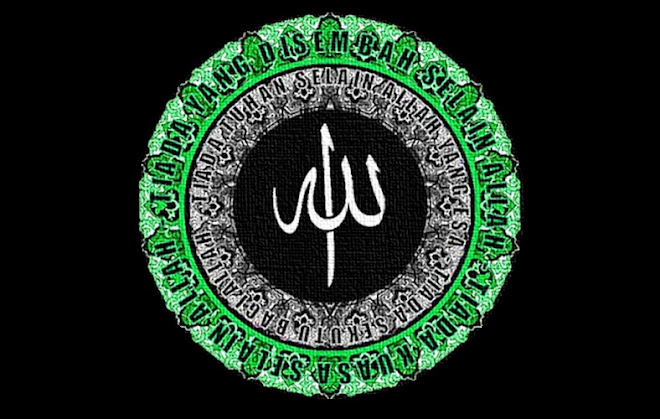

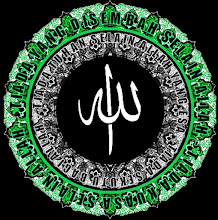


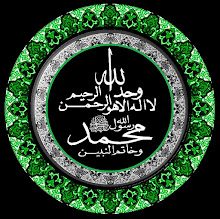
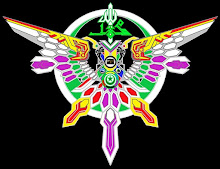




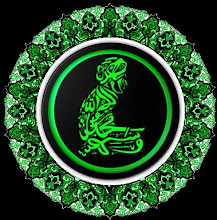








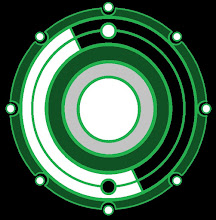























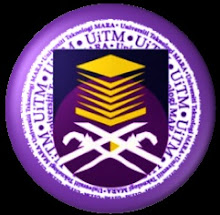








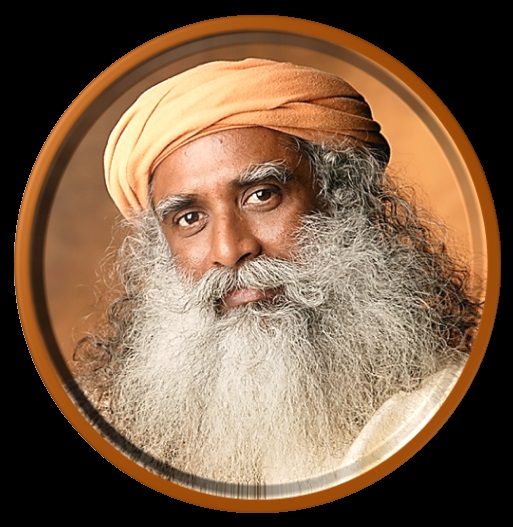

































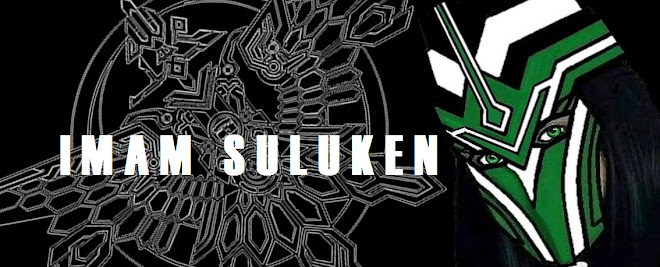
Tiada ulasan:
Catat Ulasan